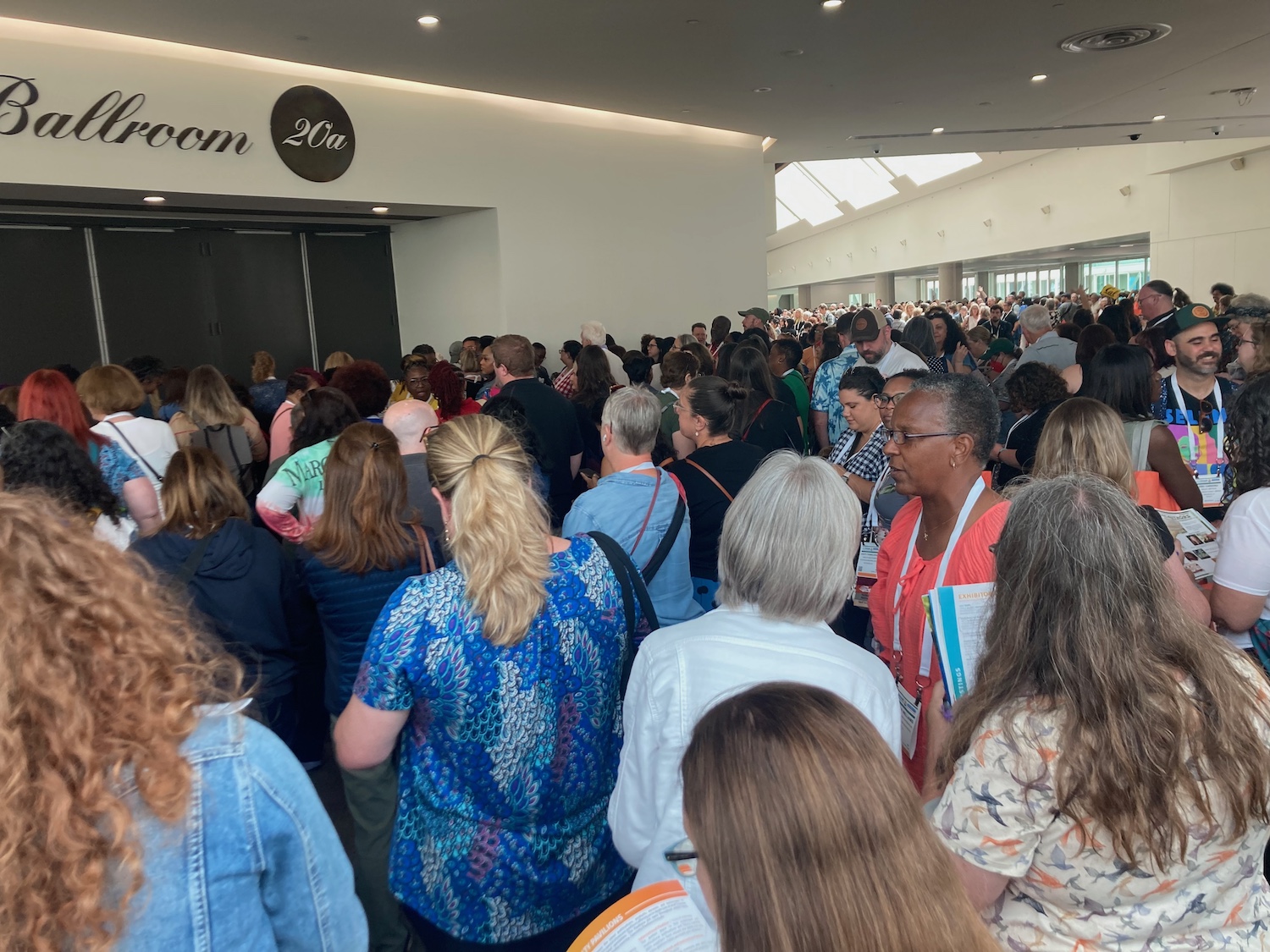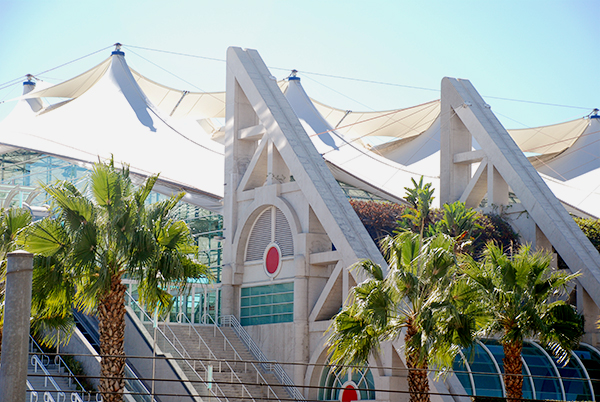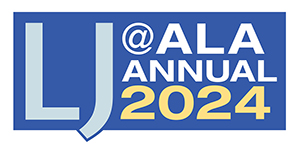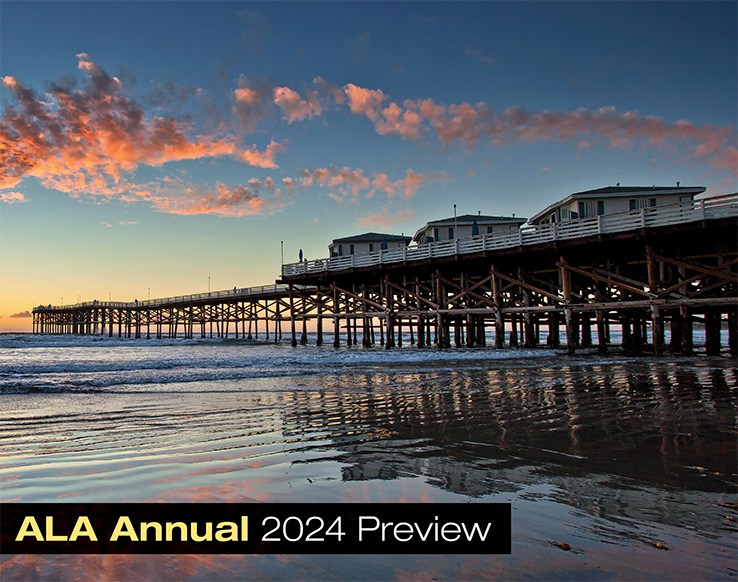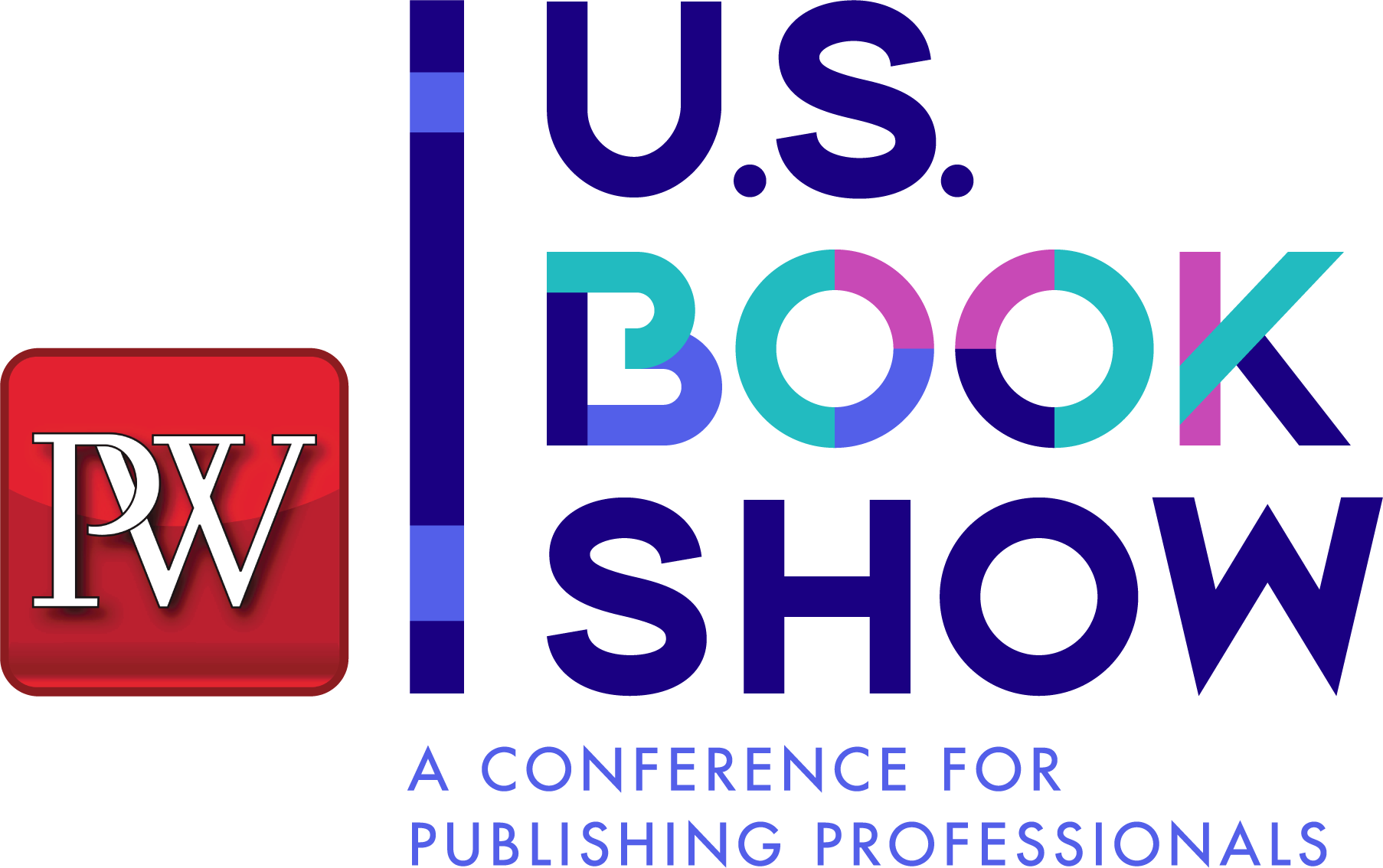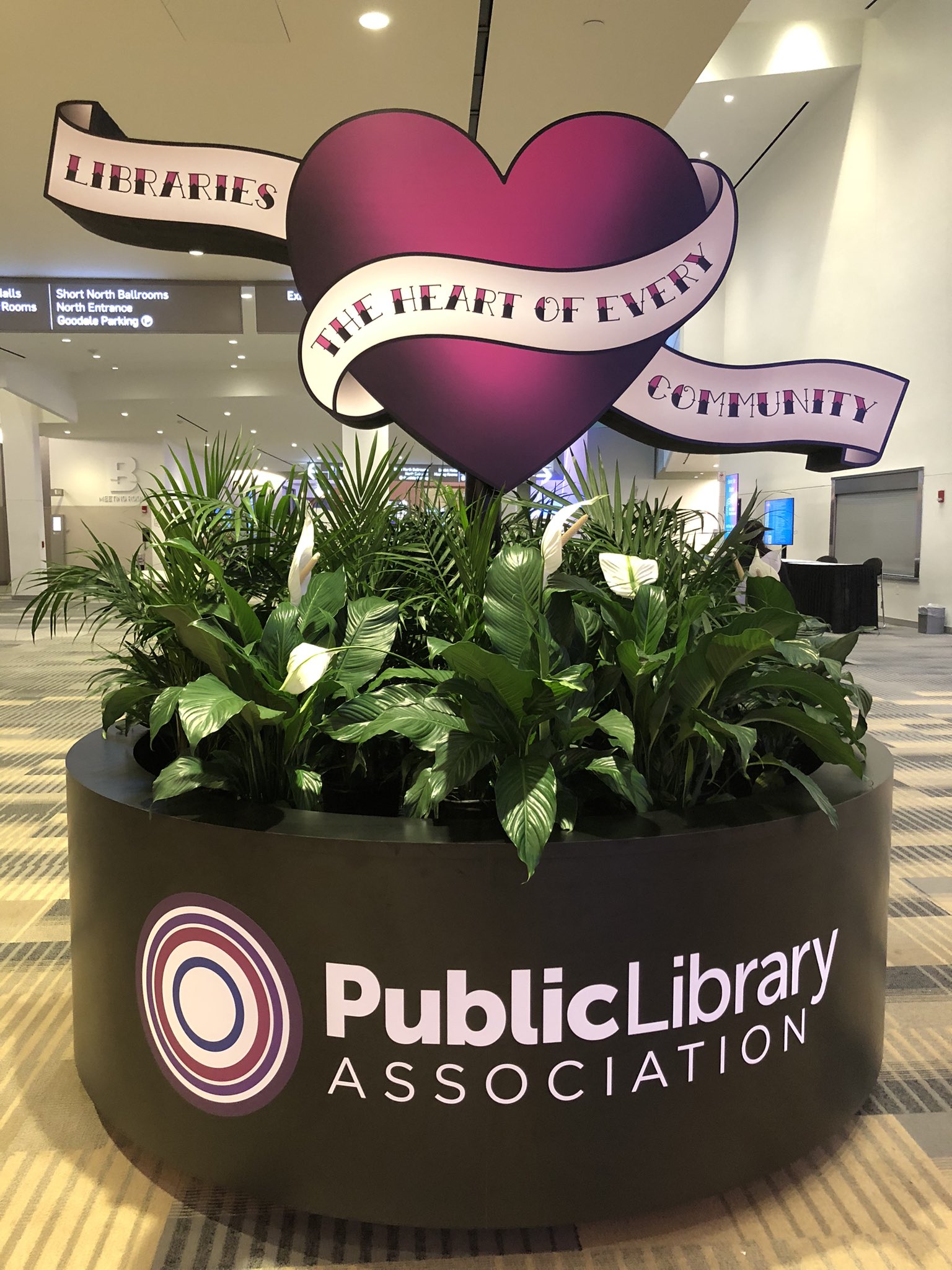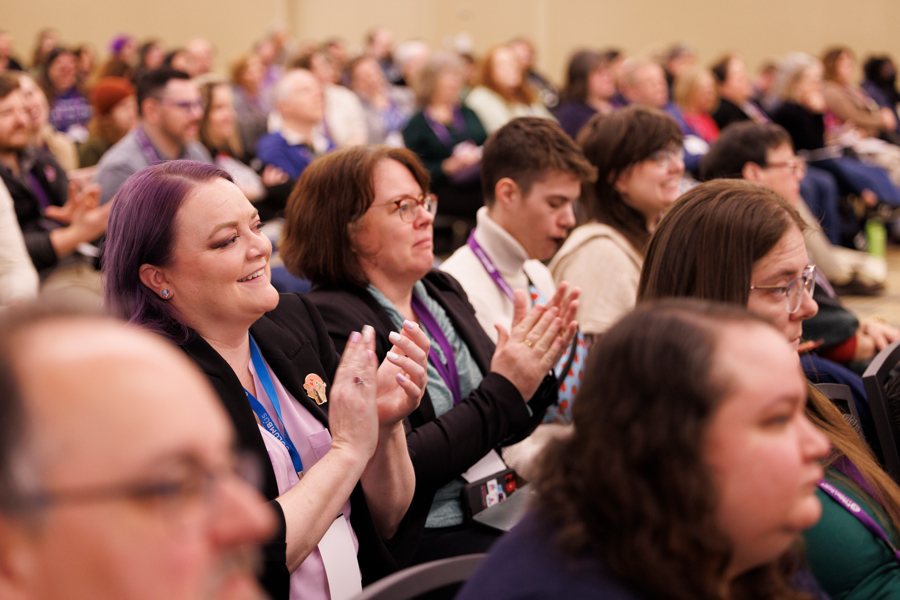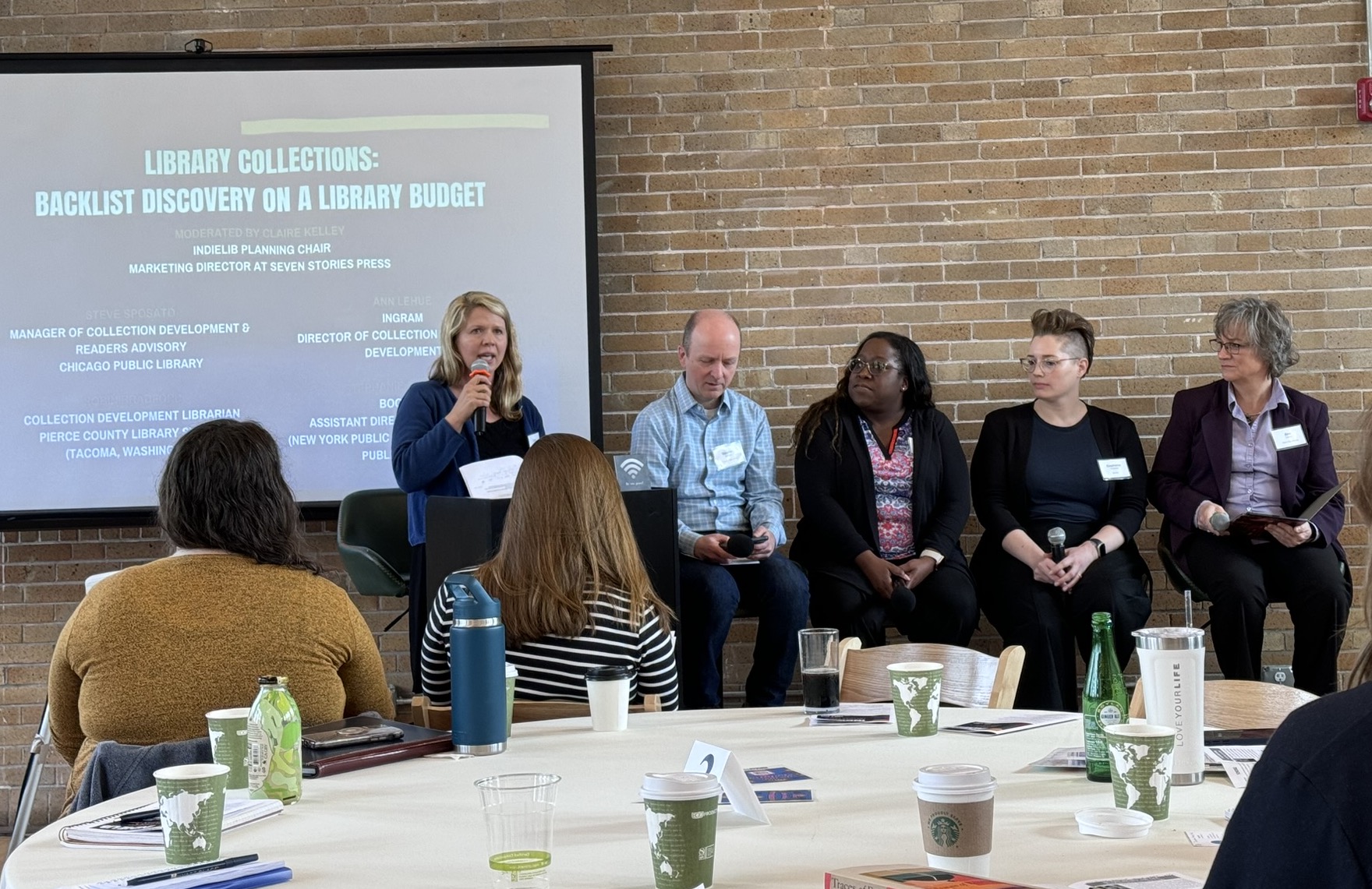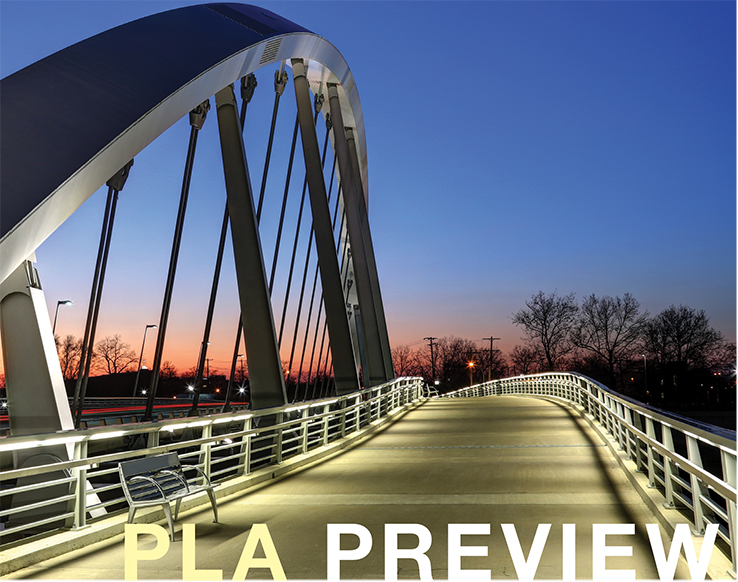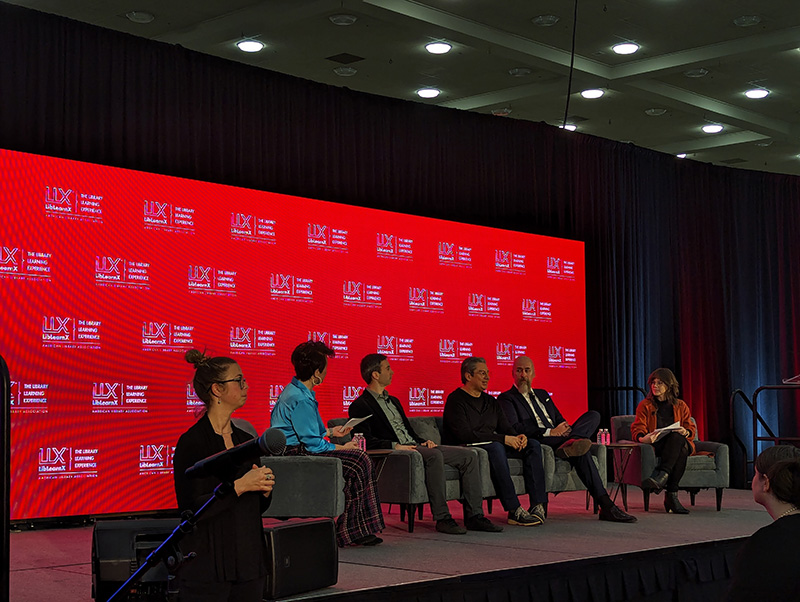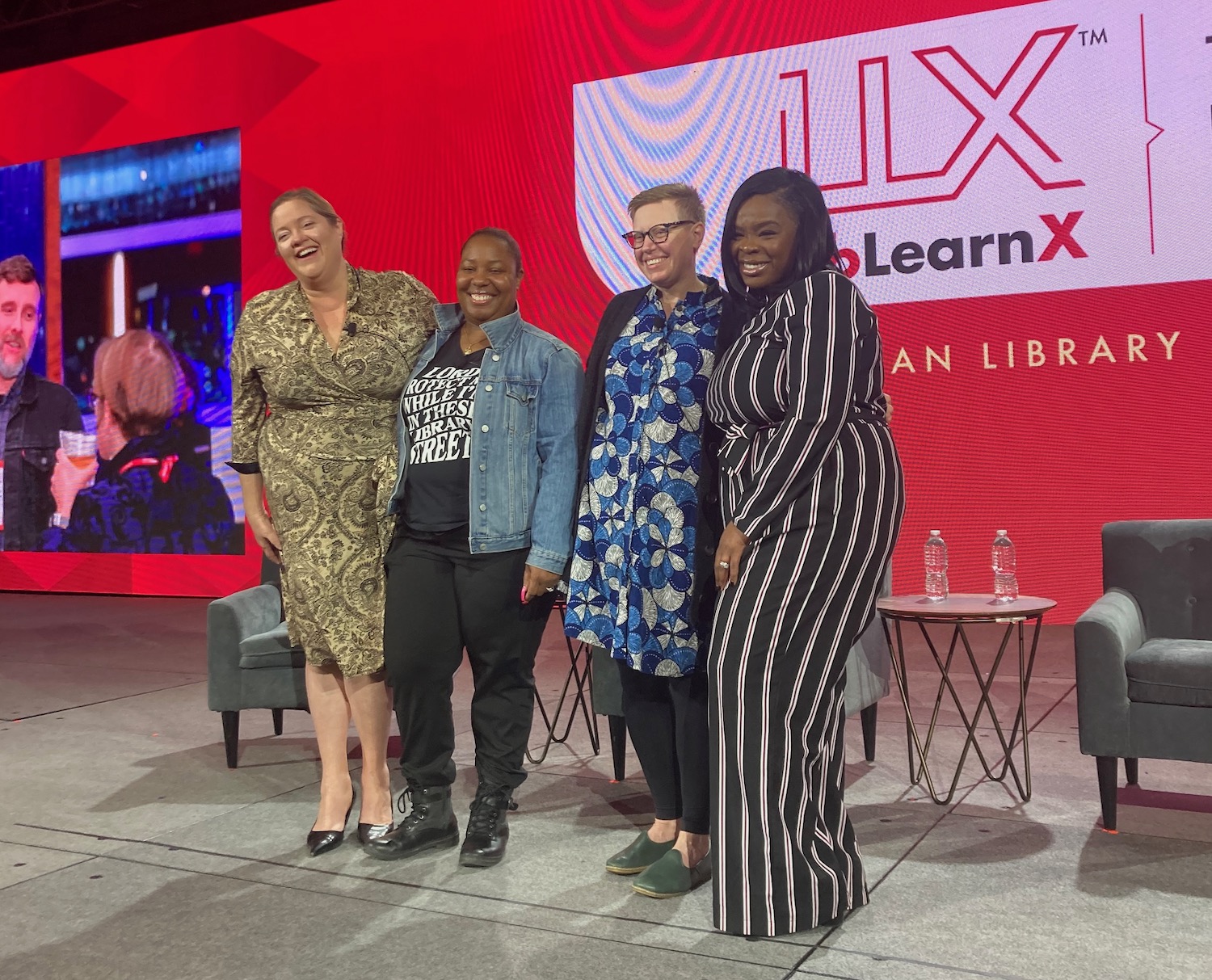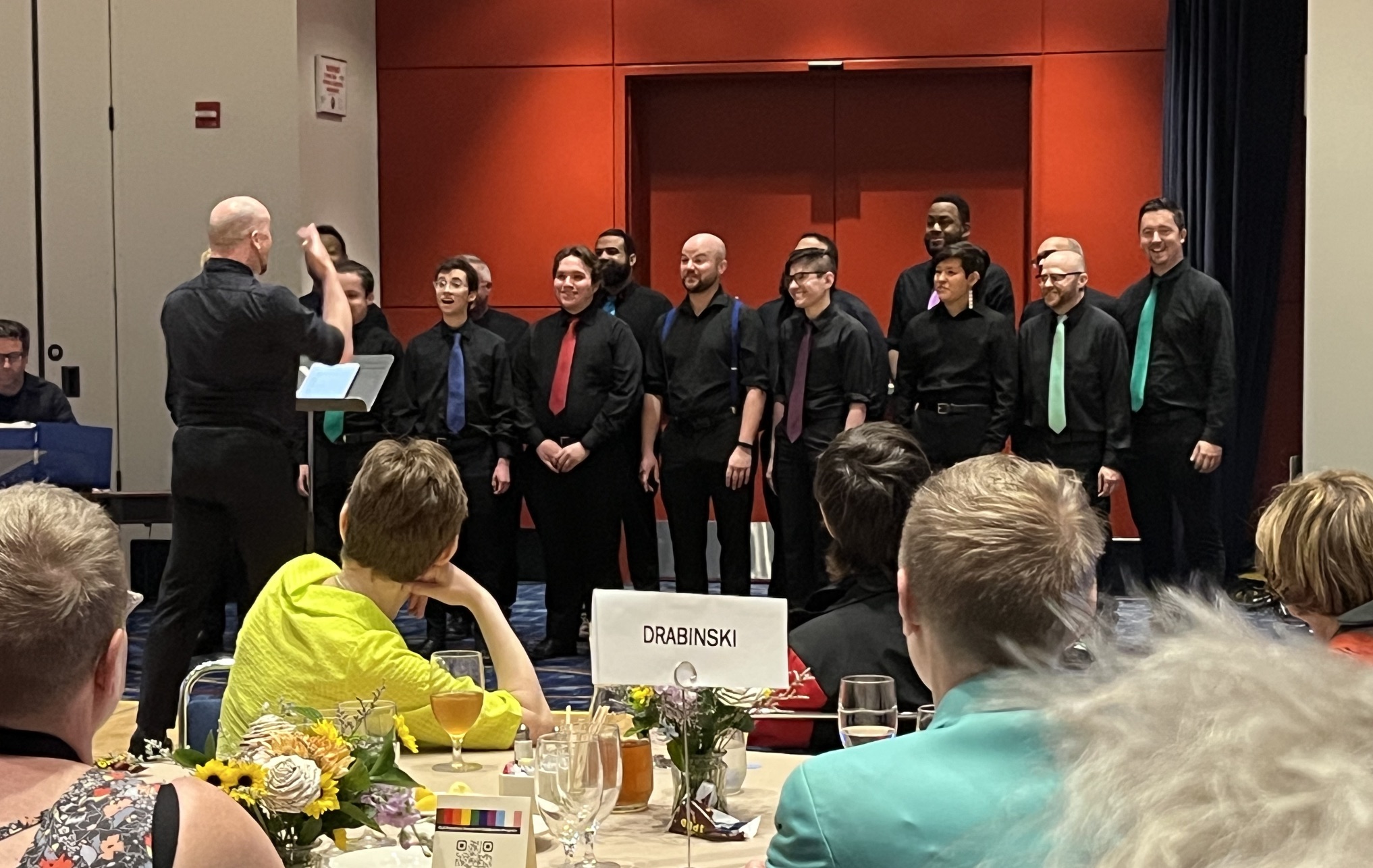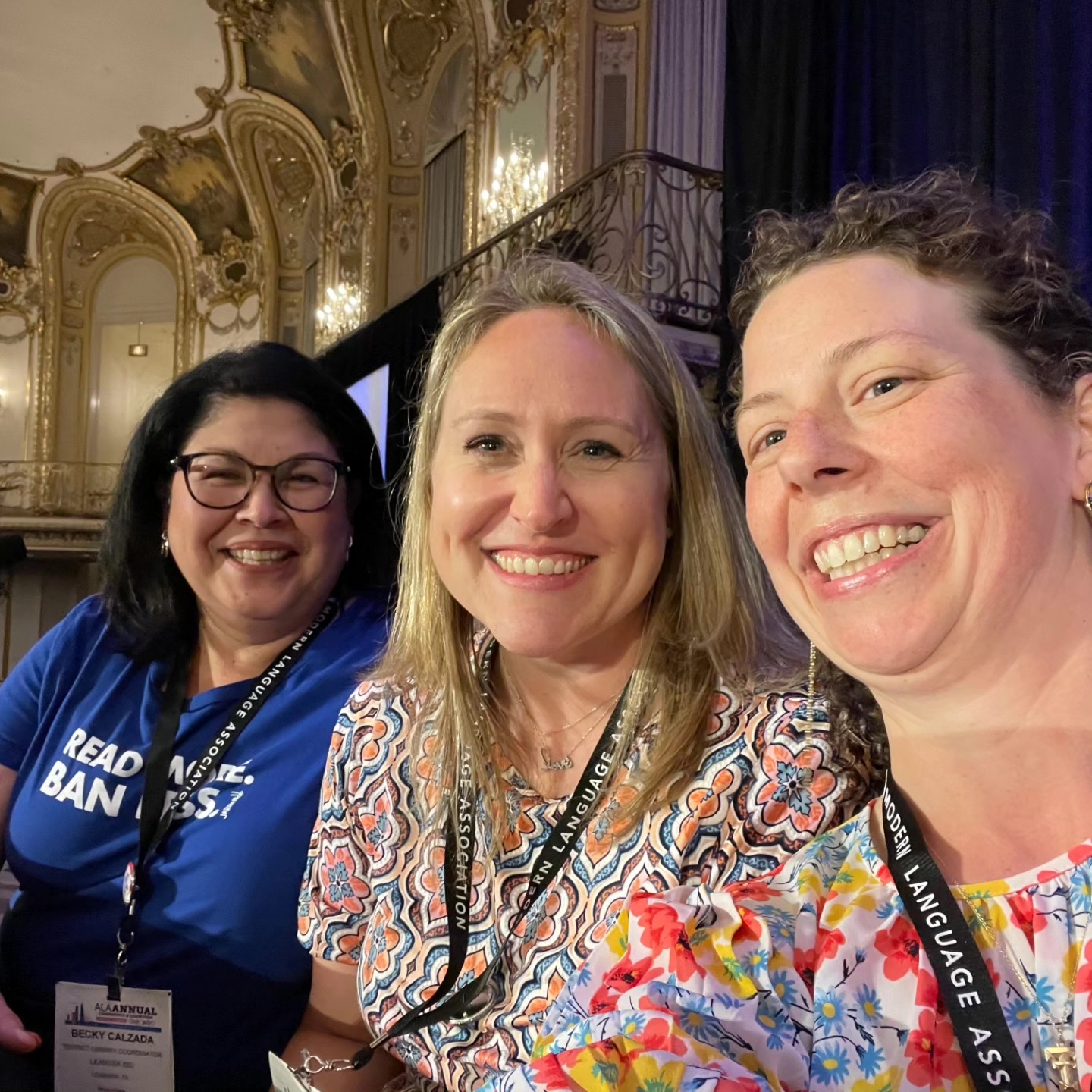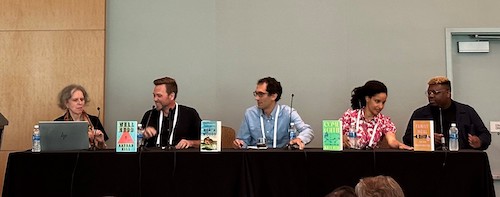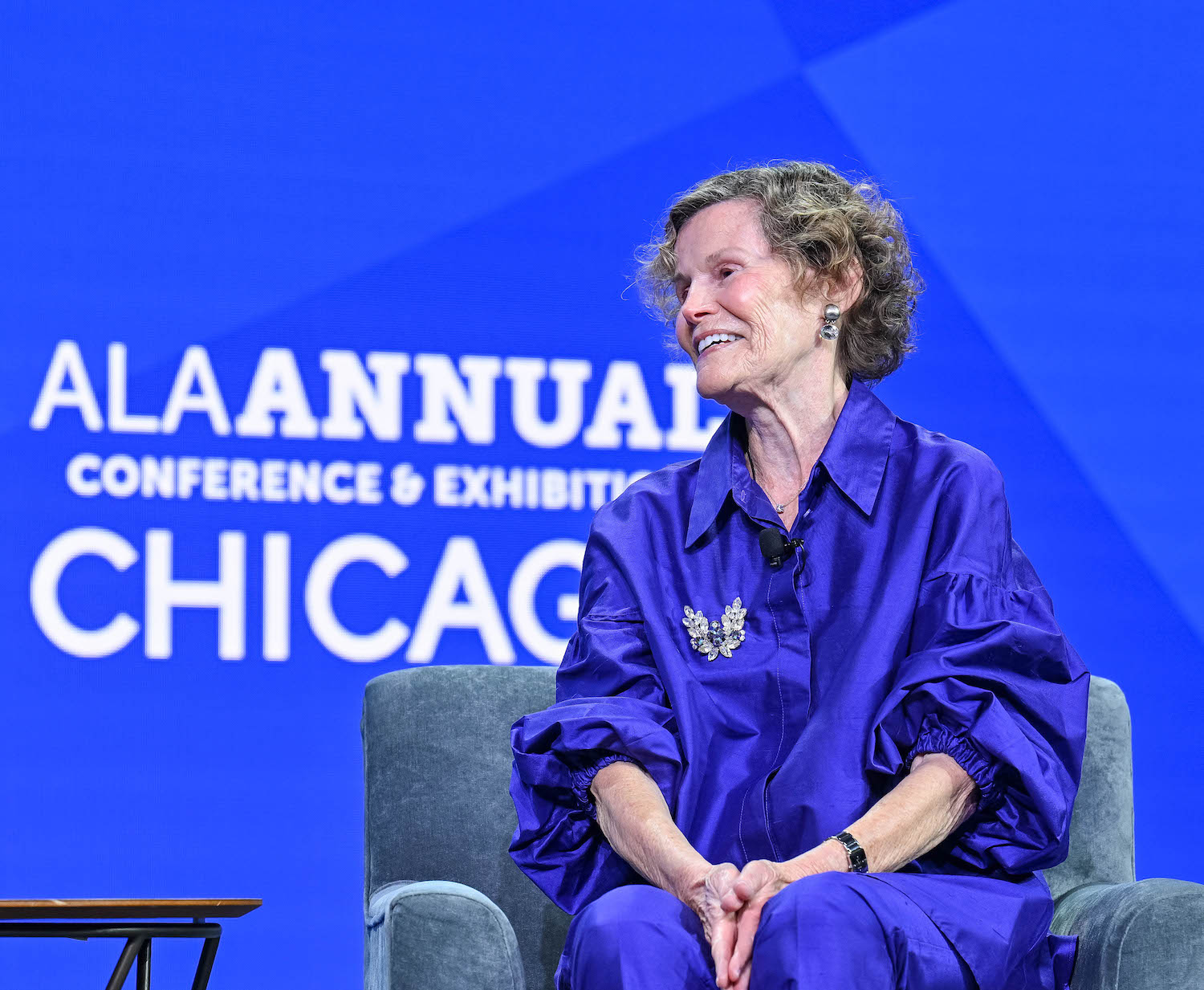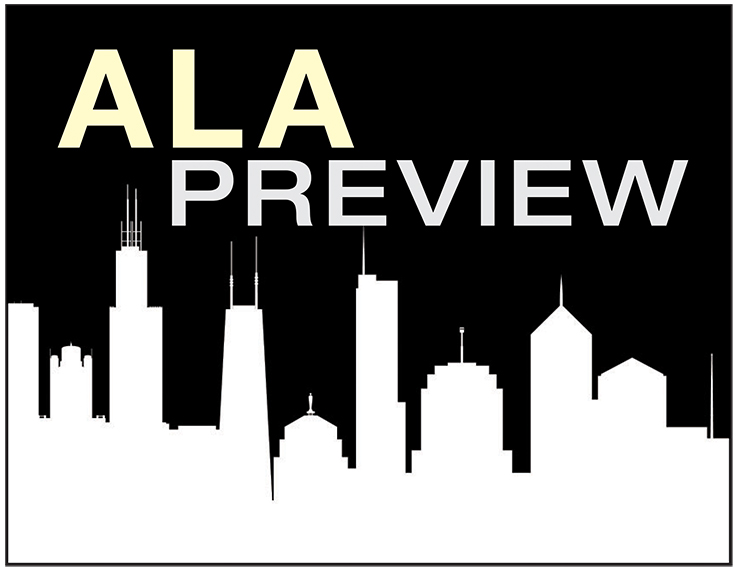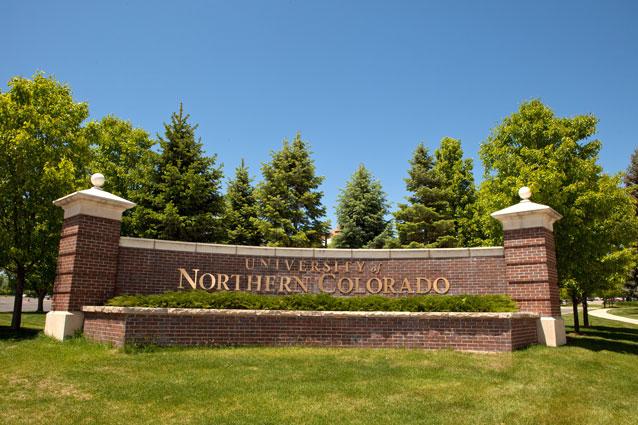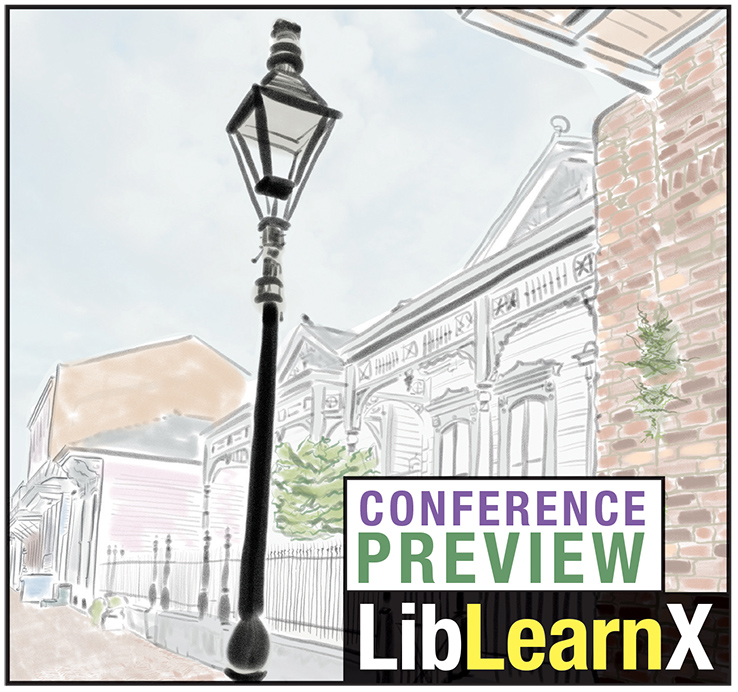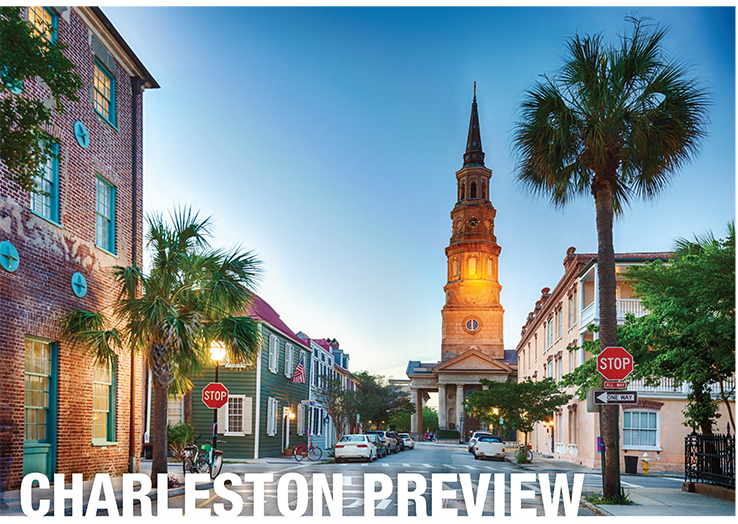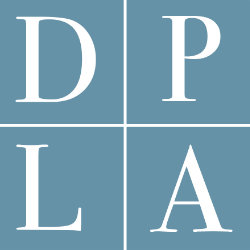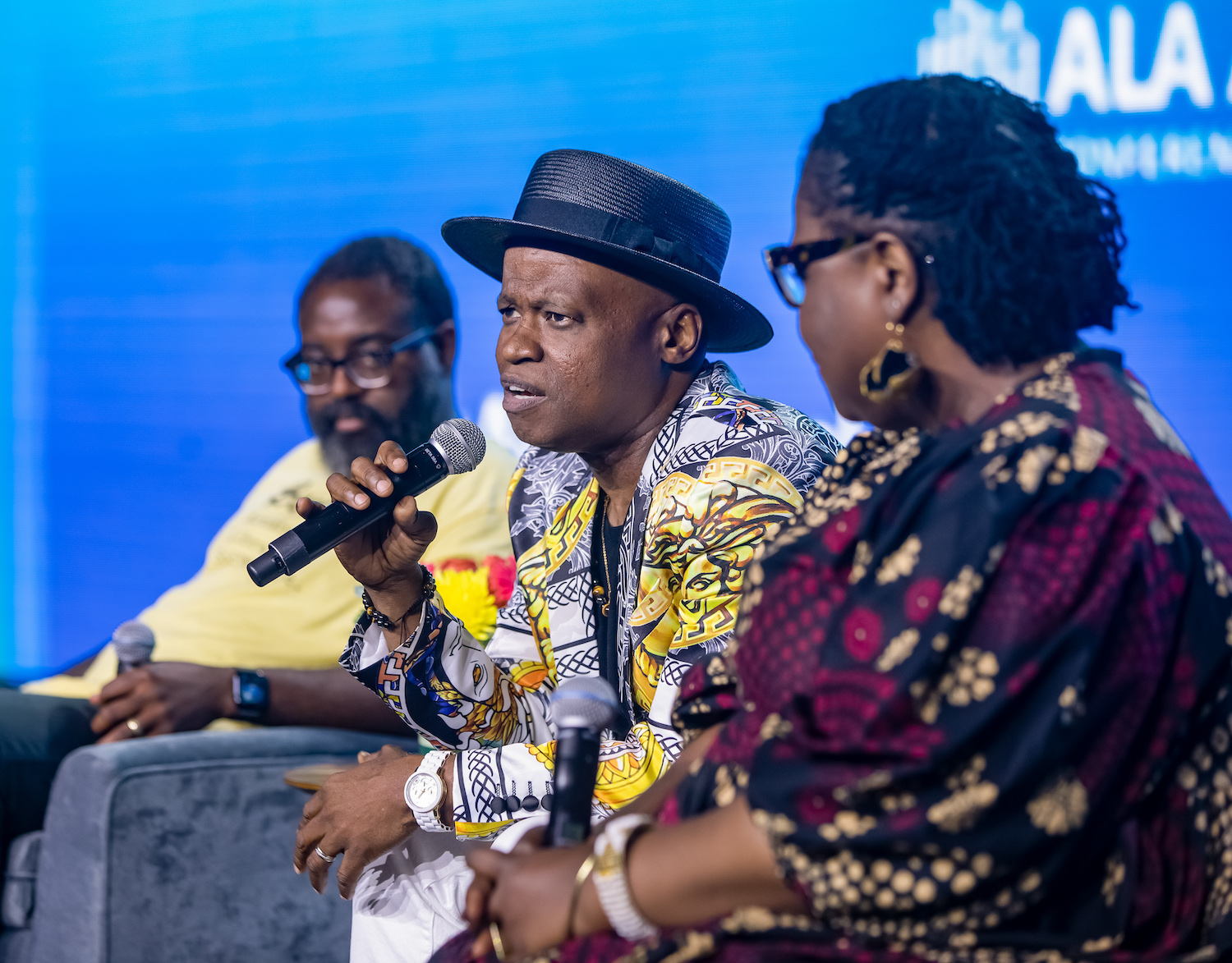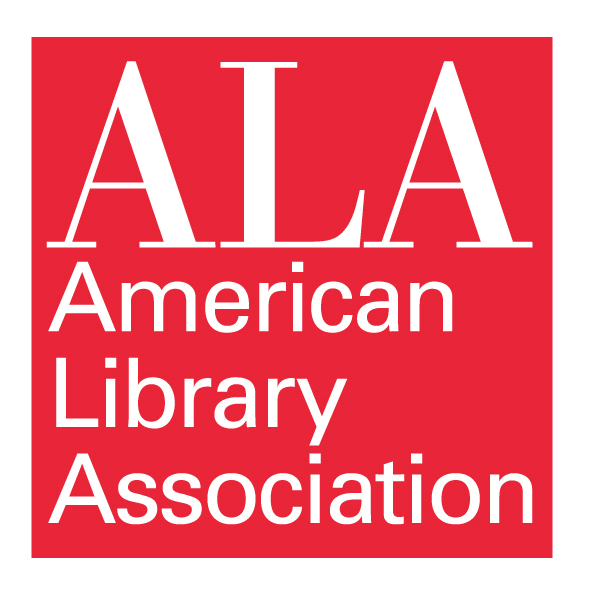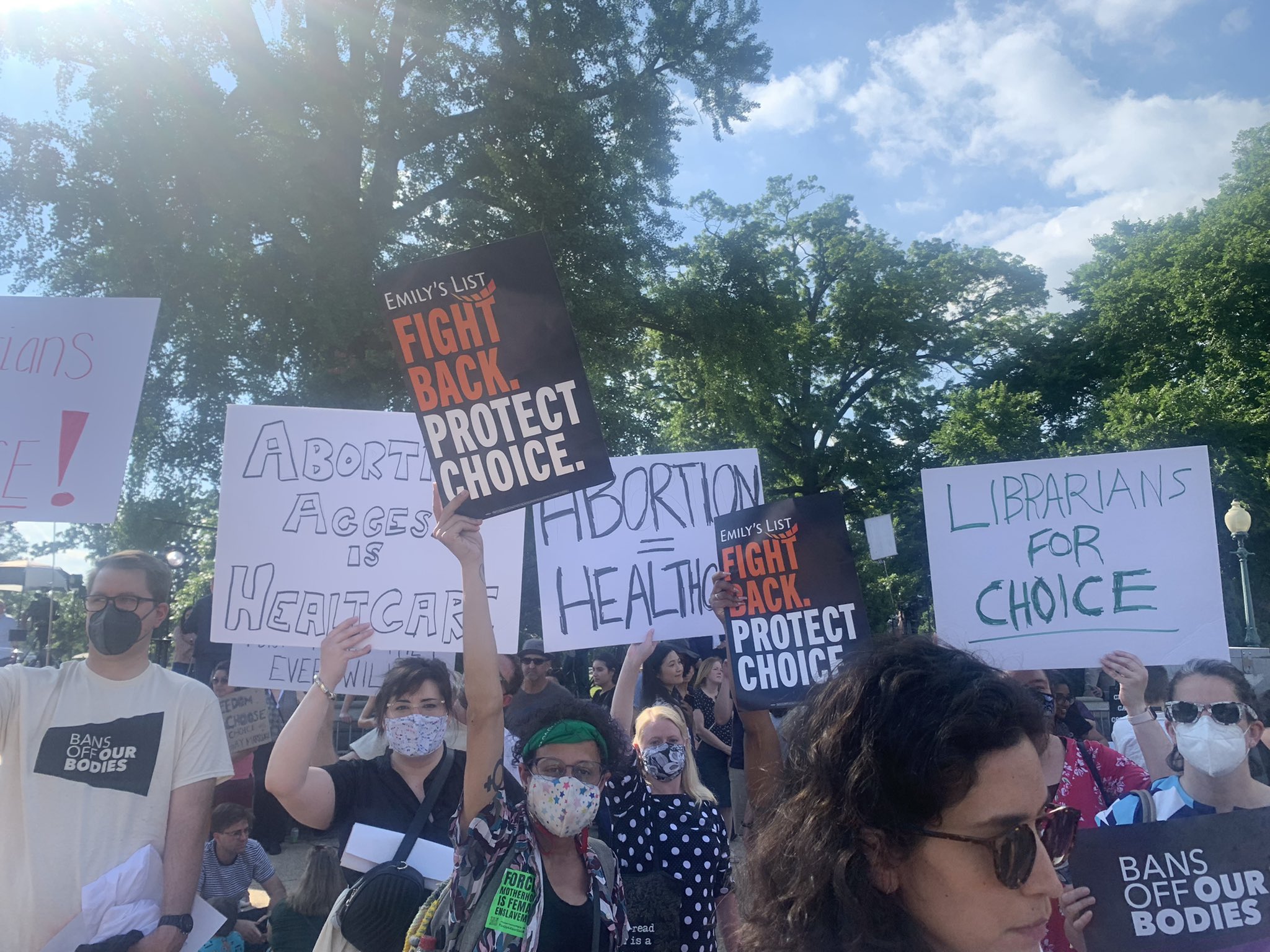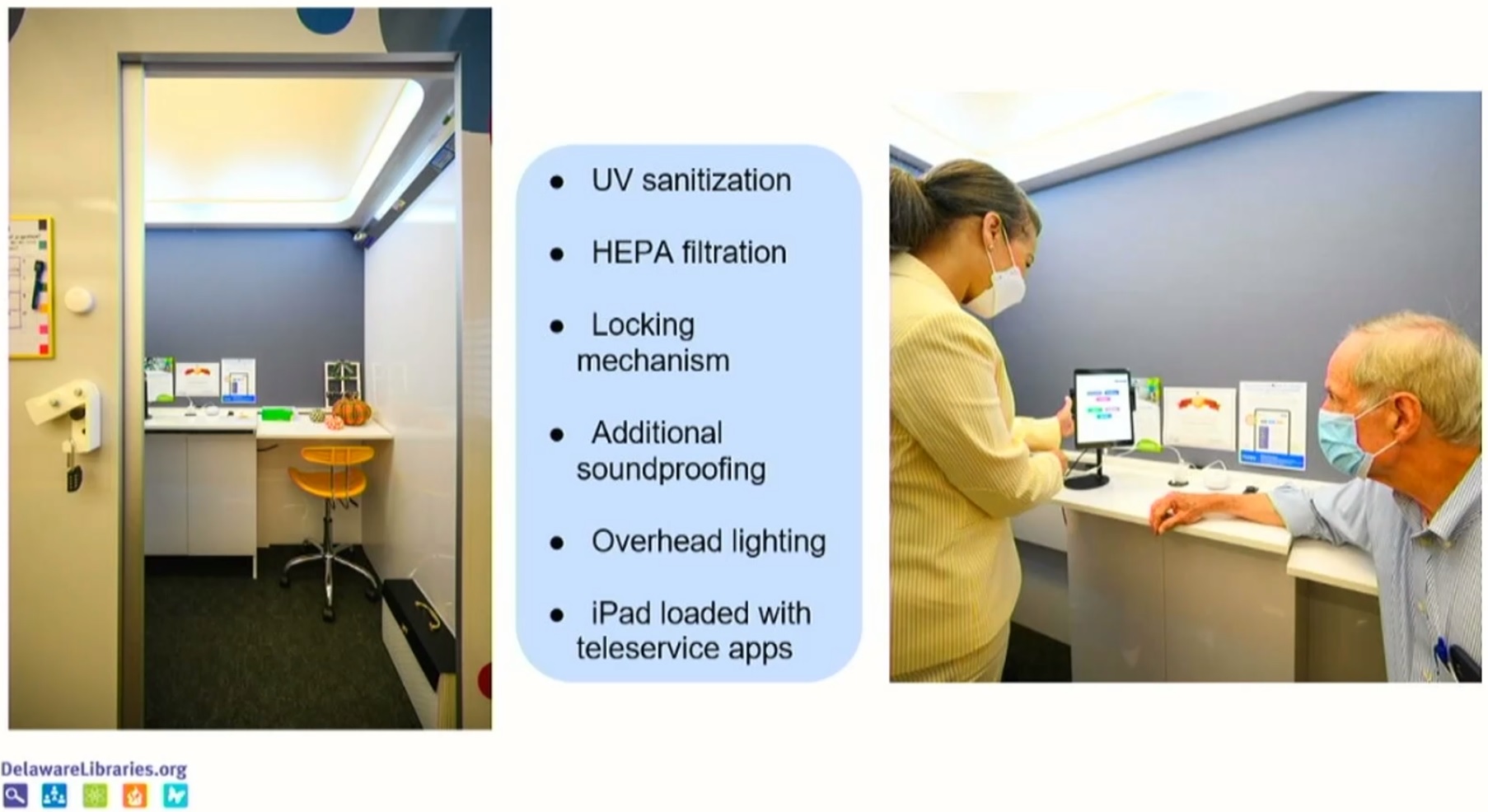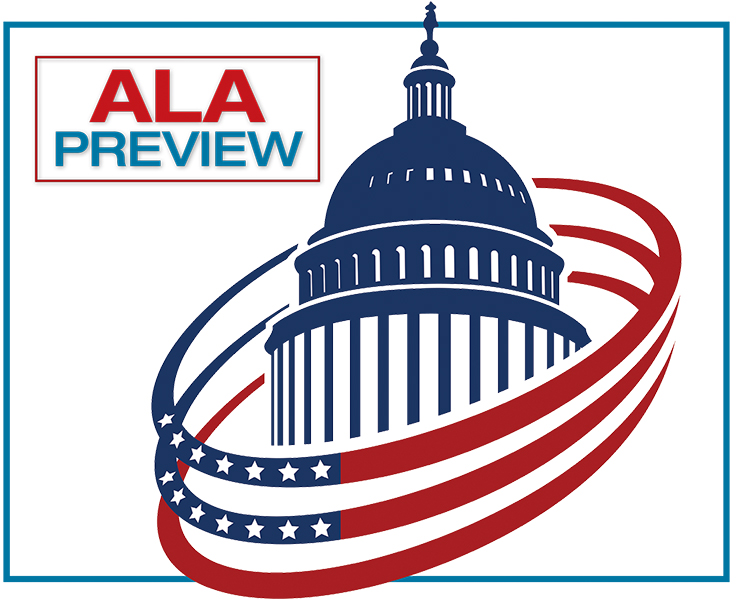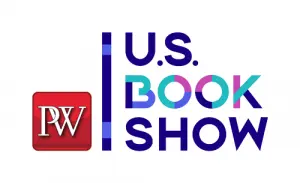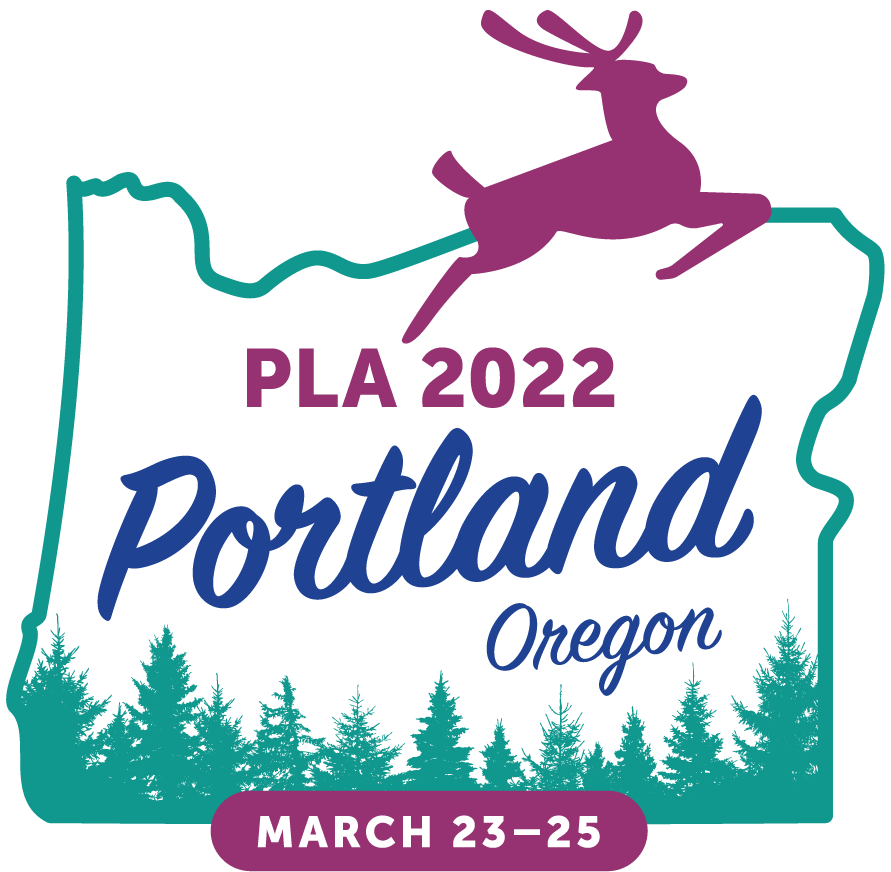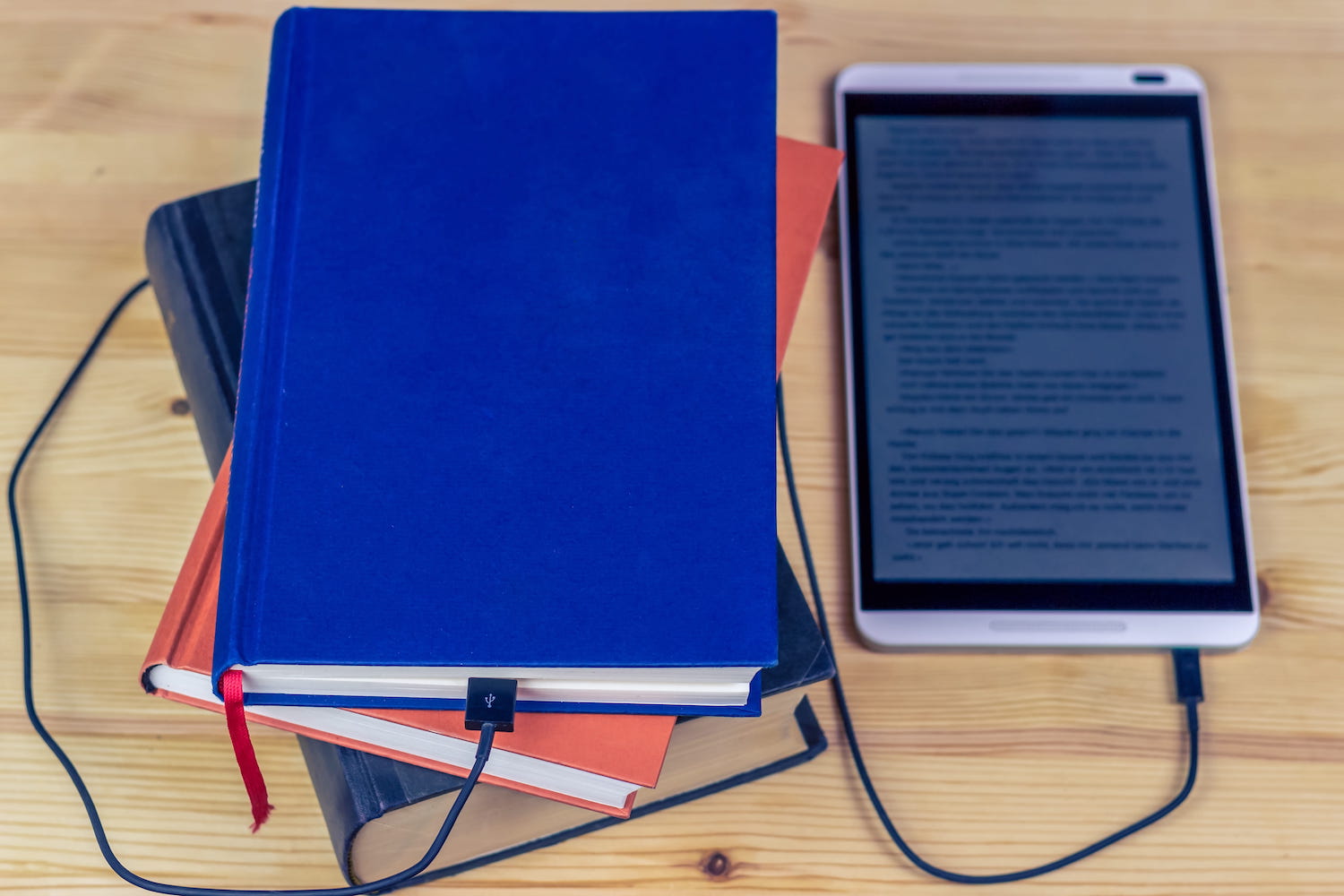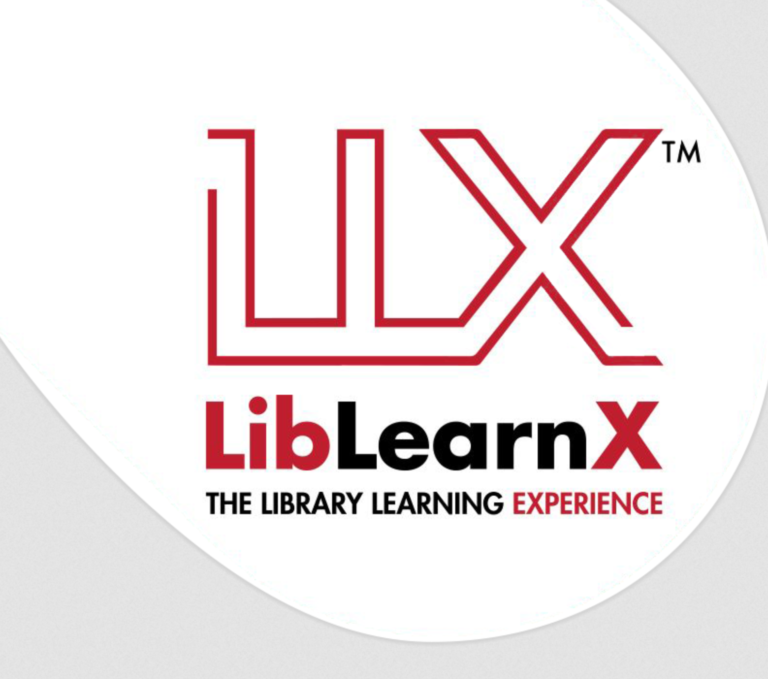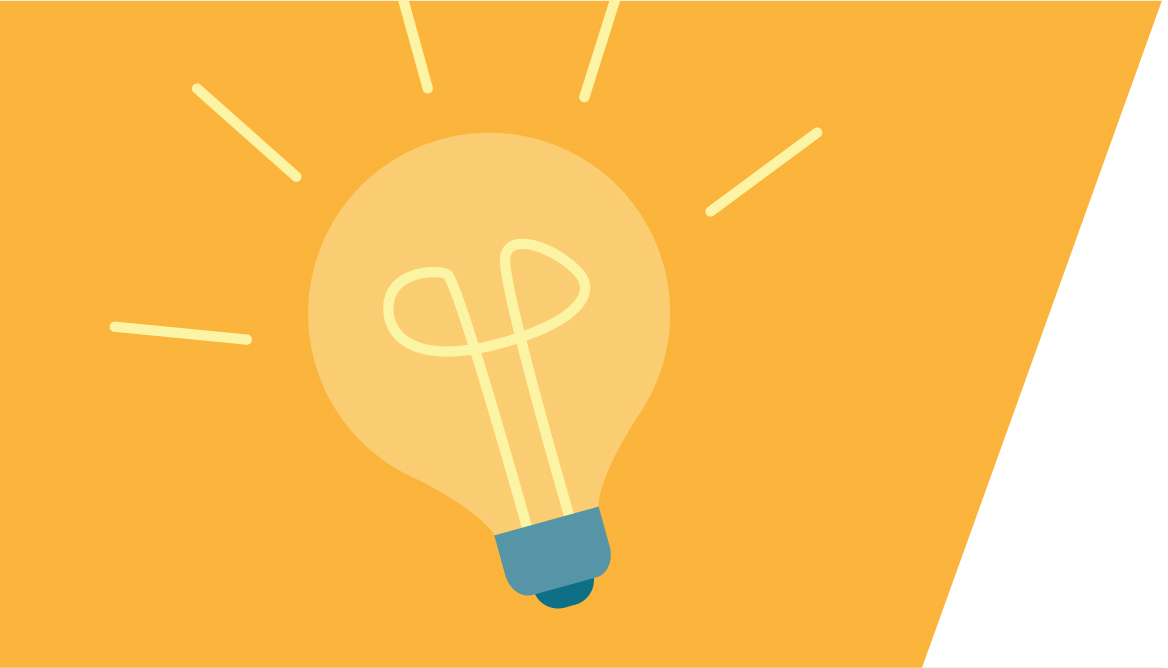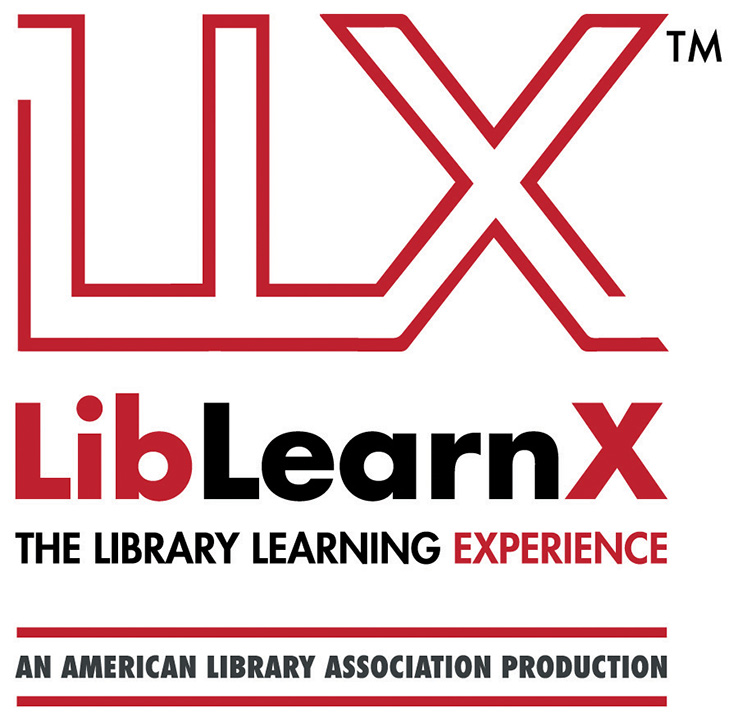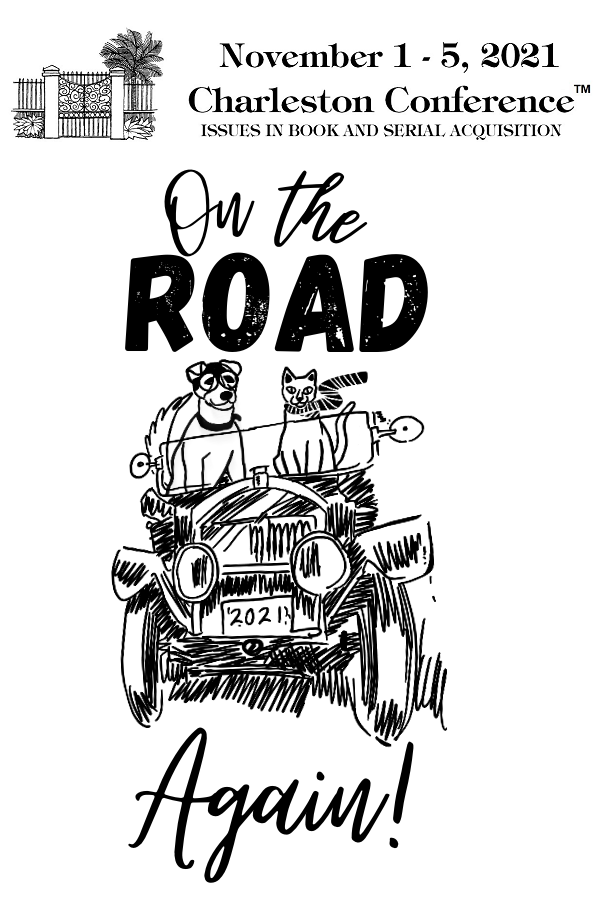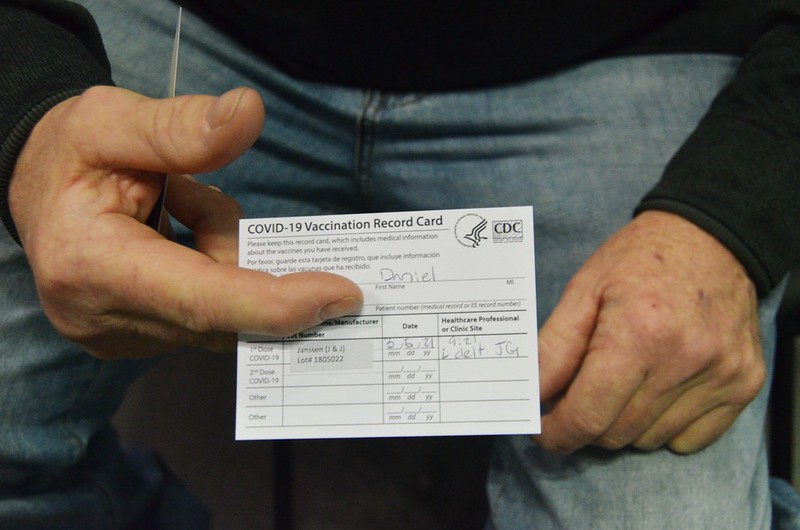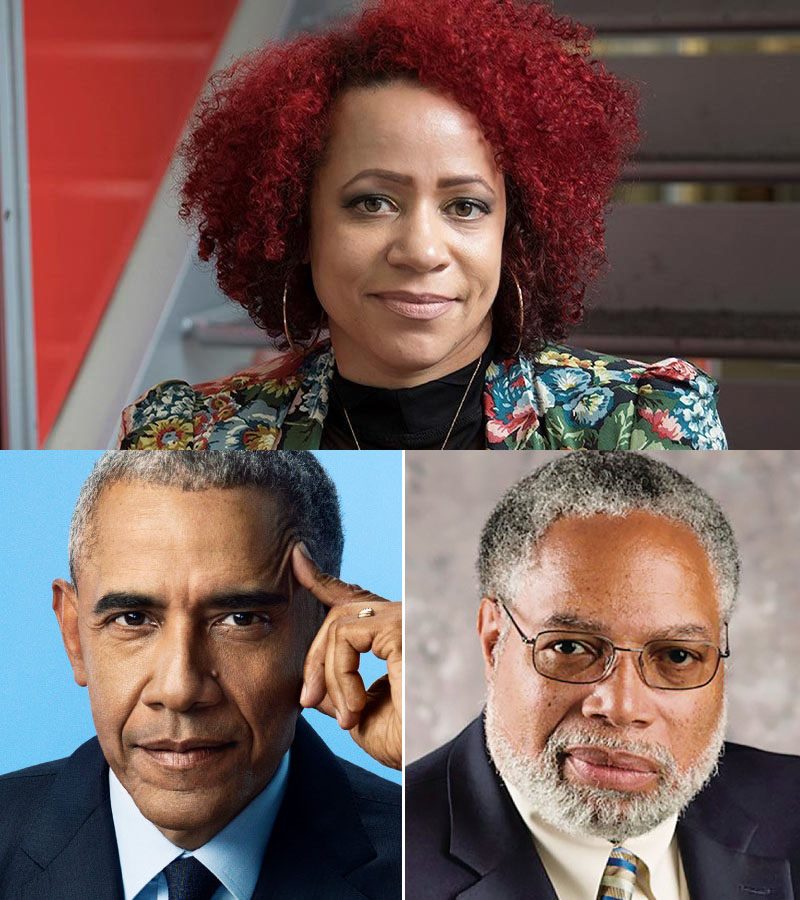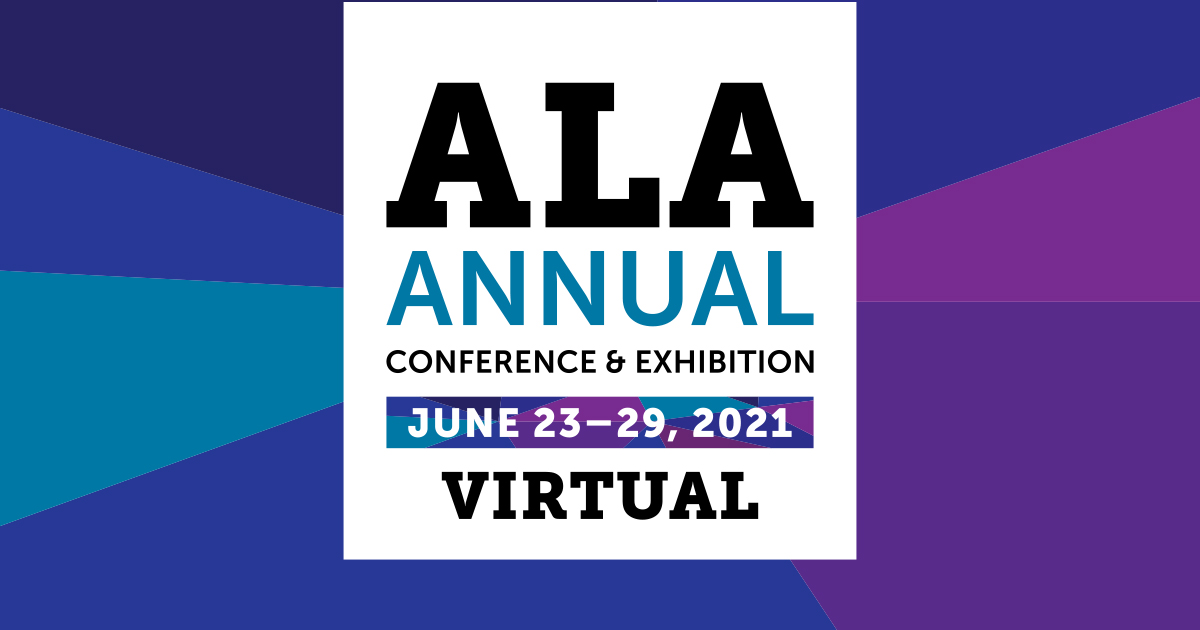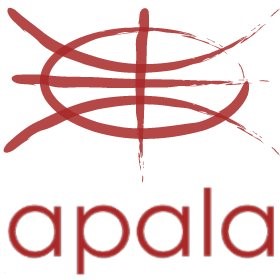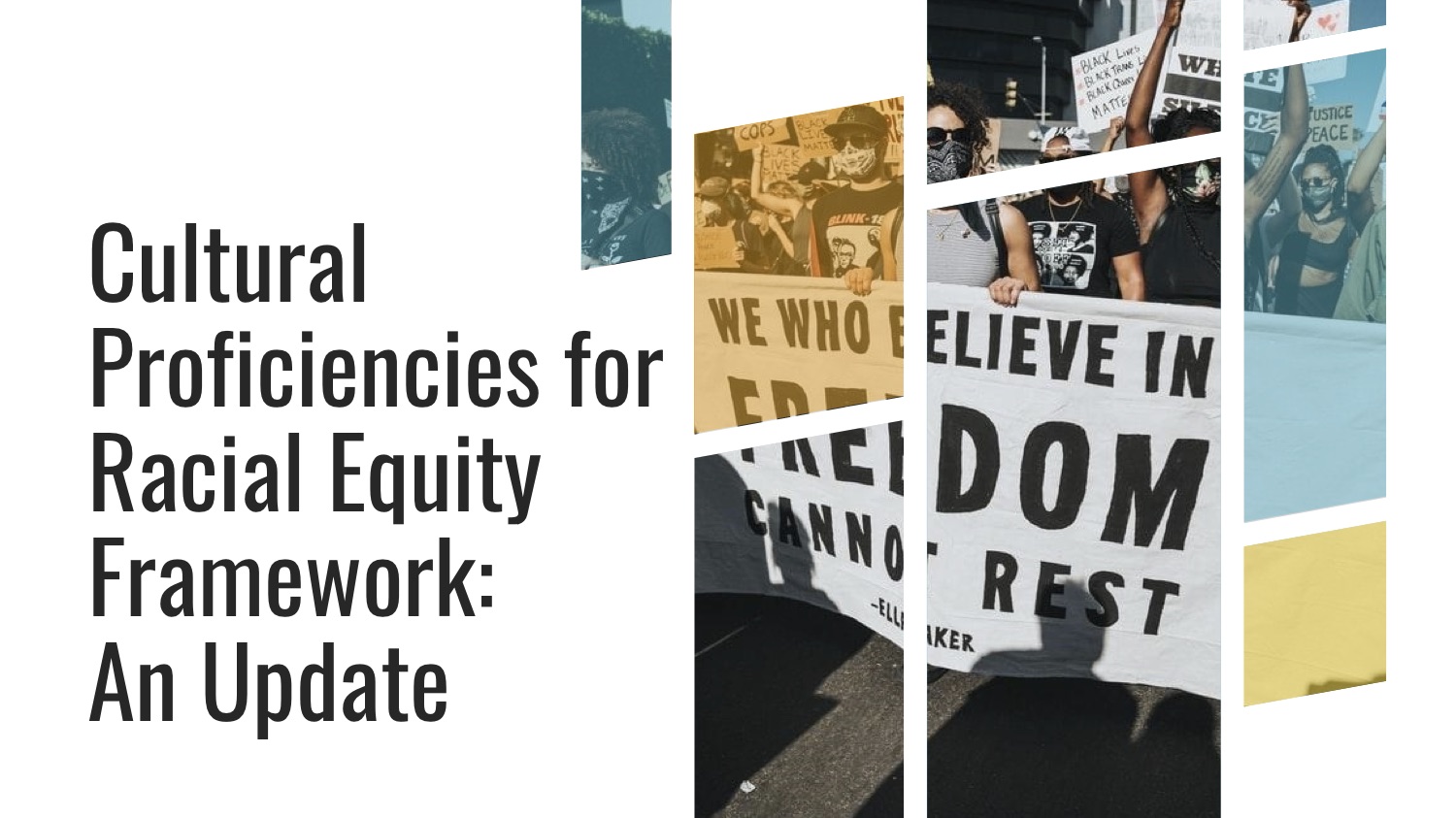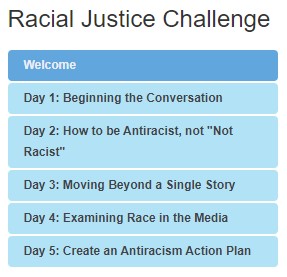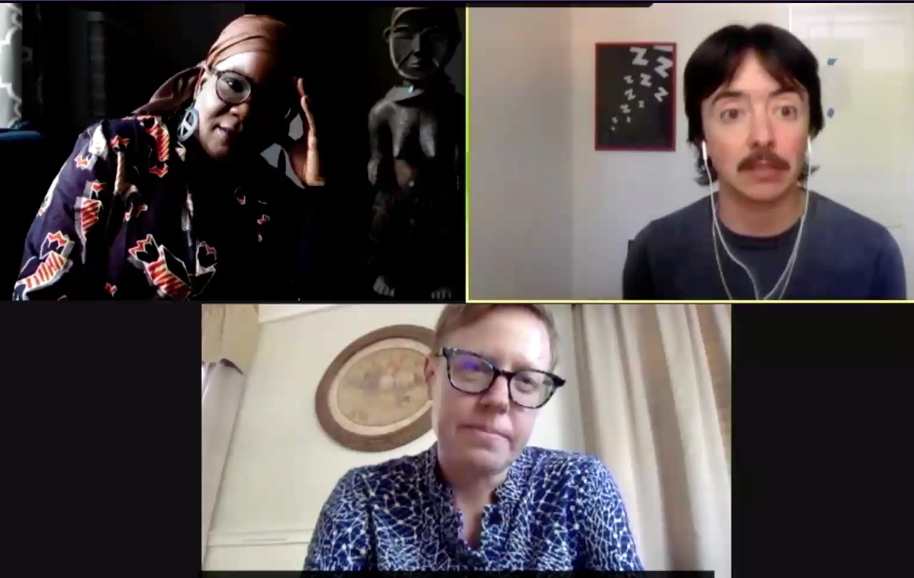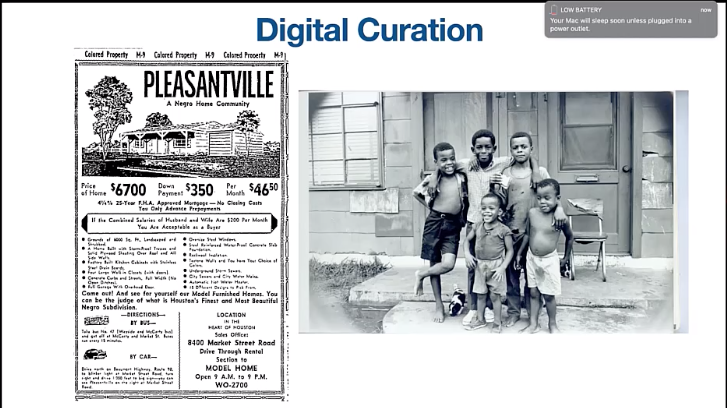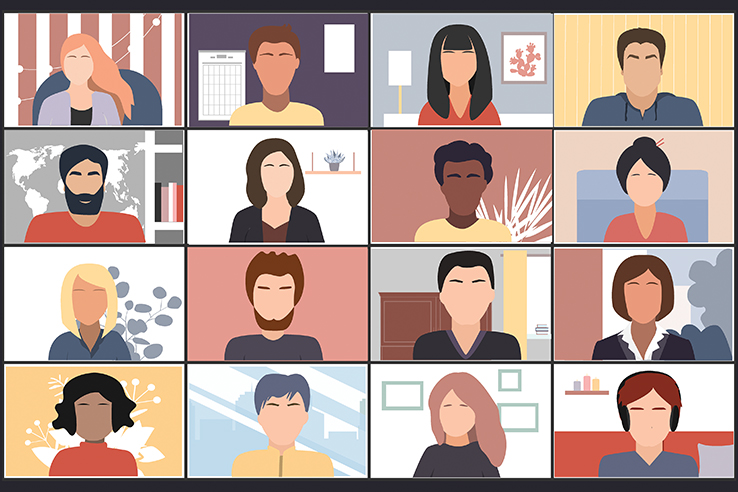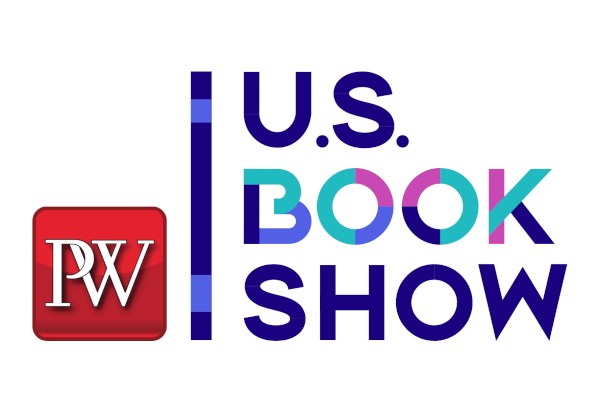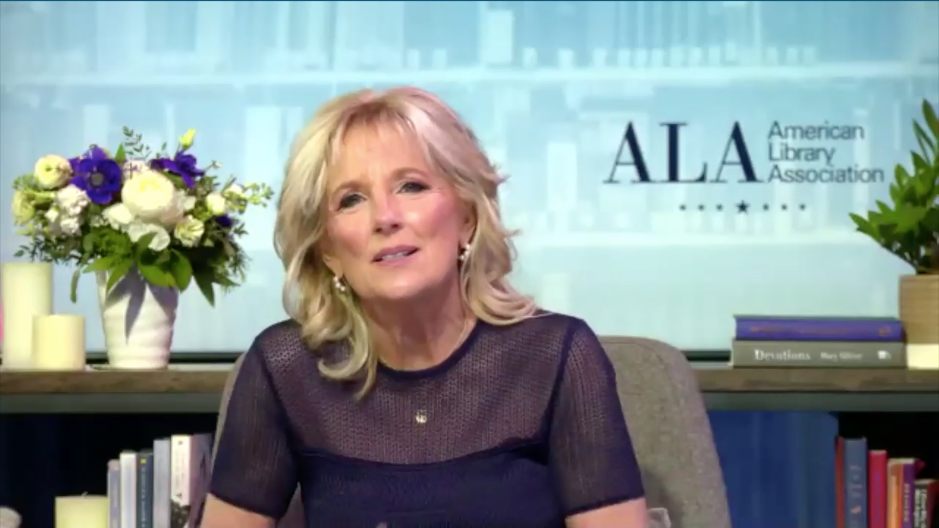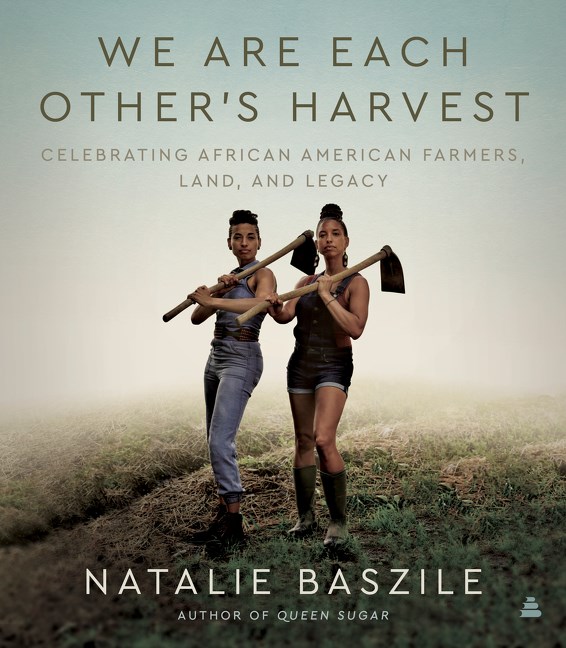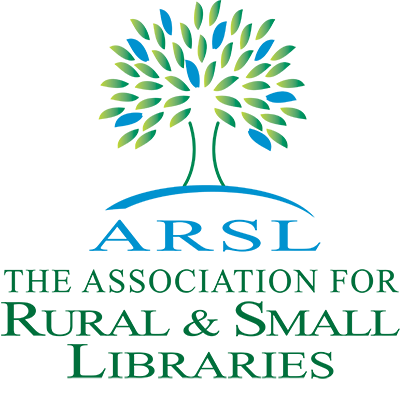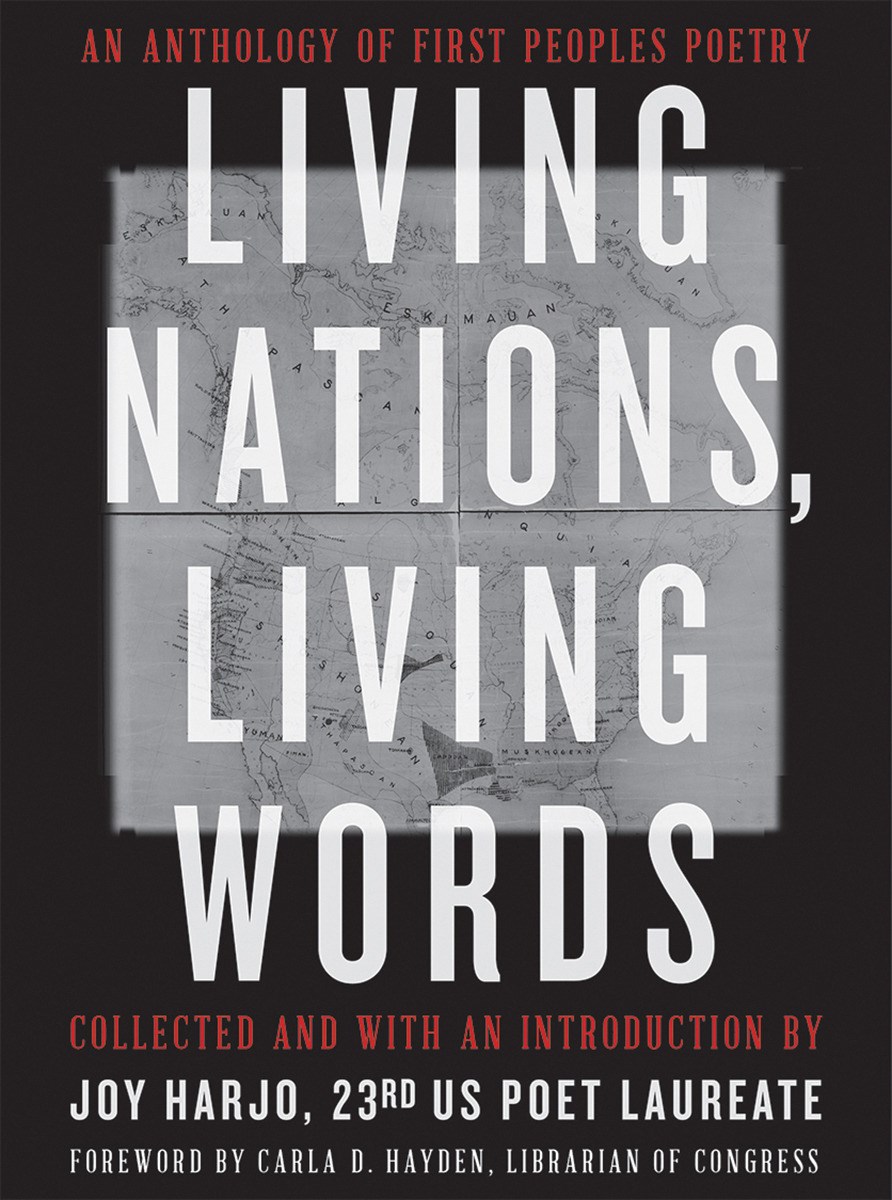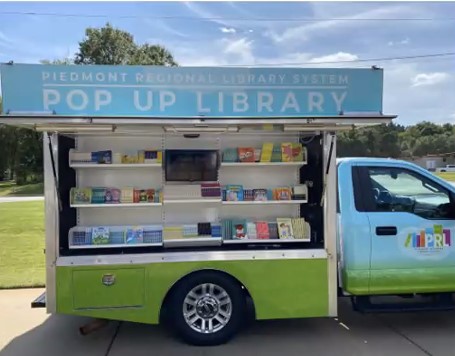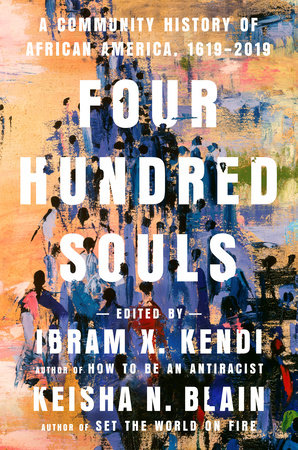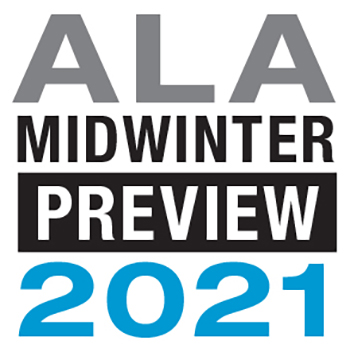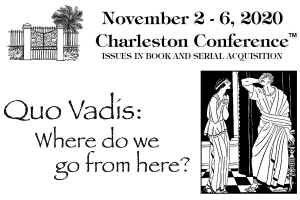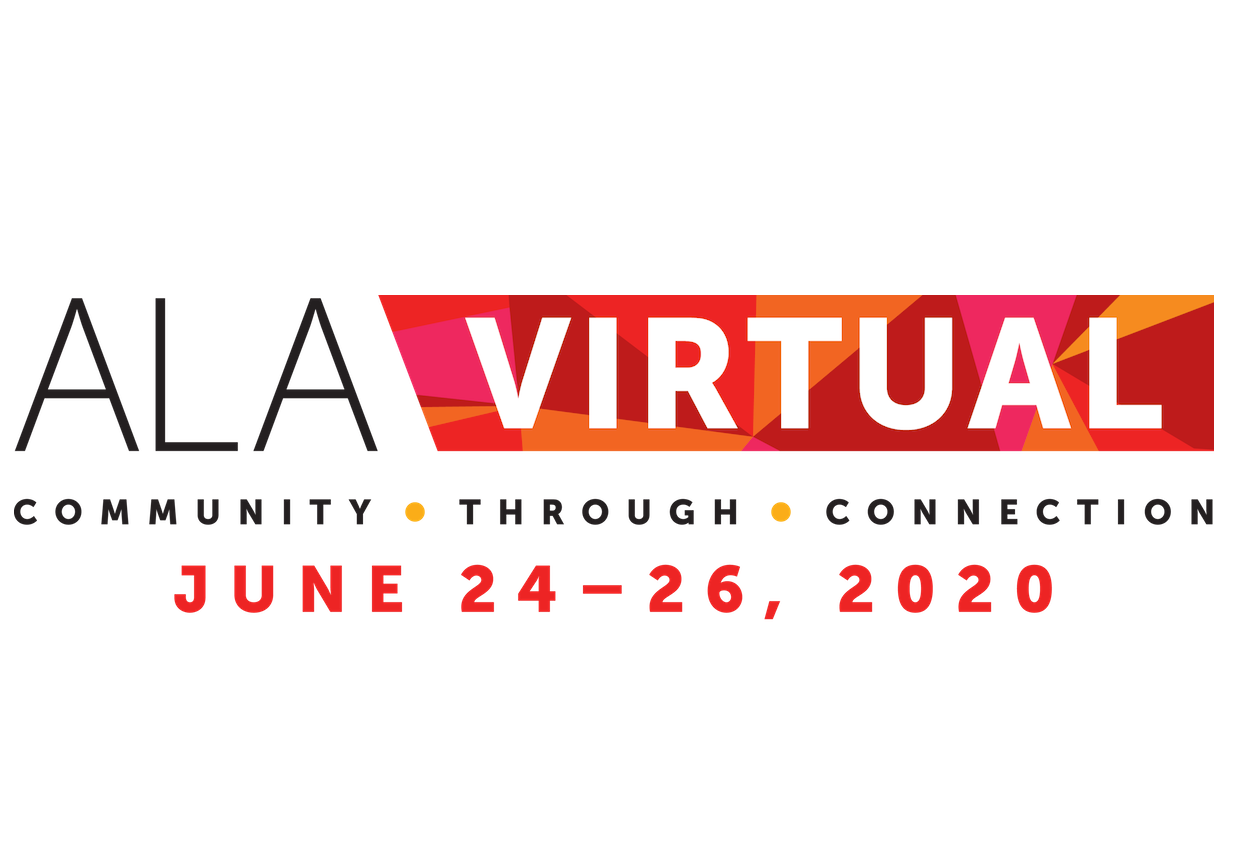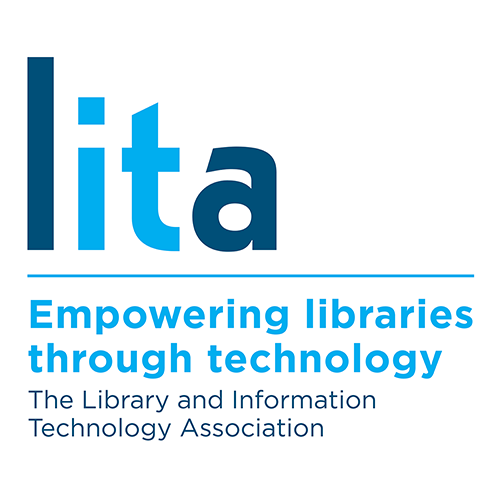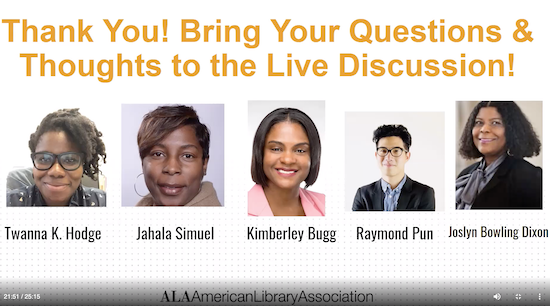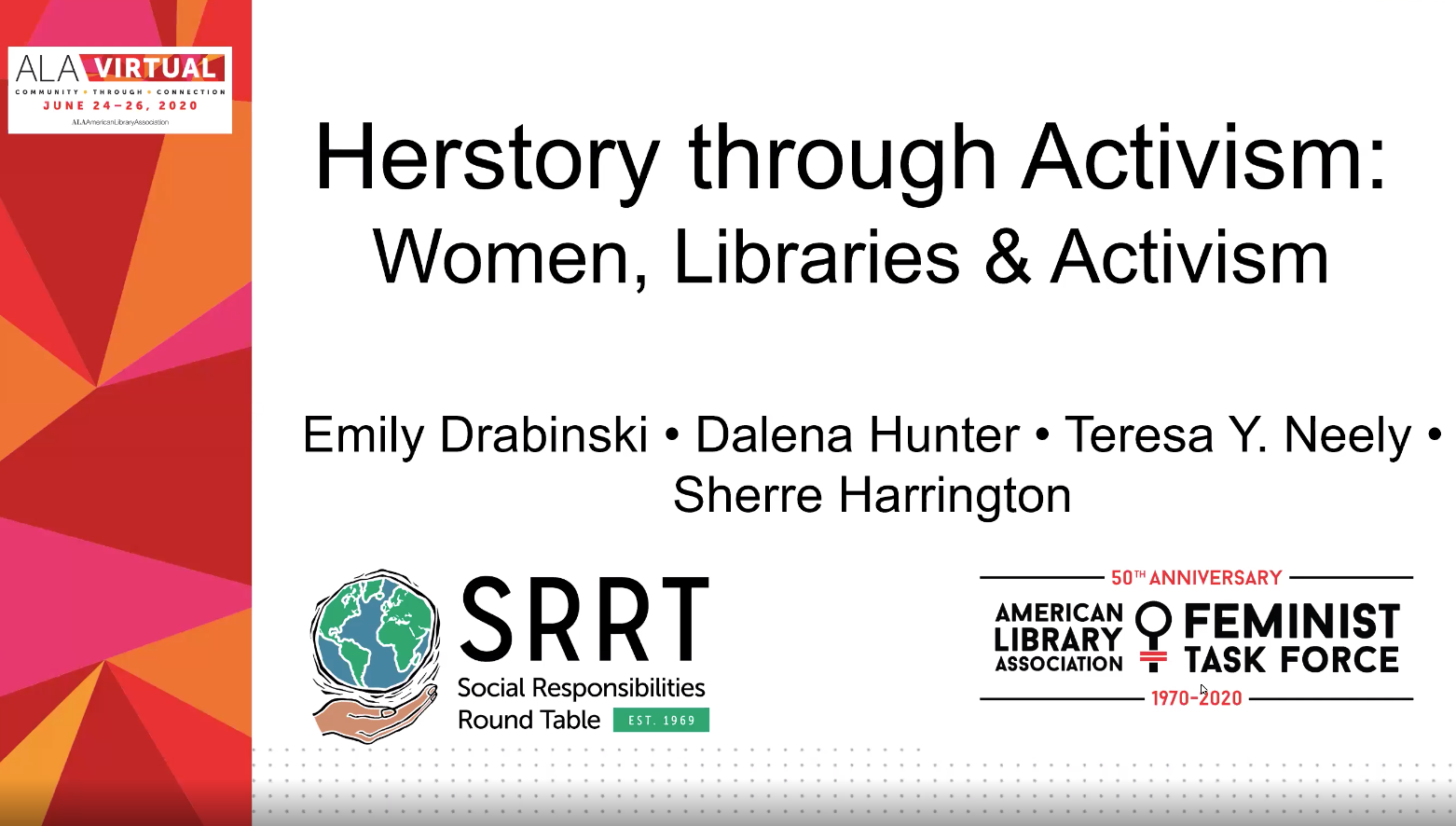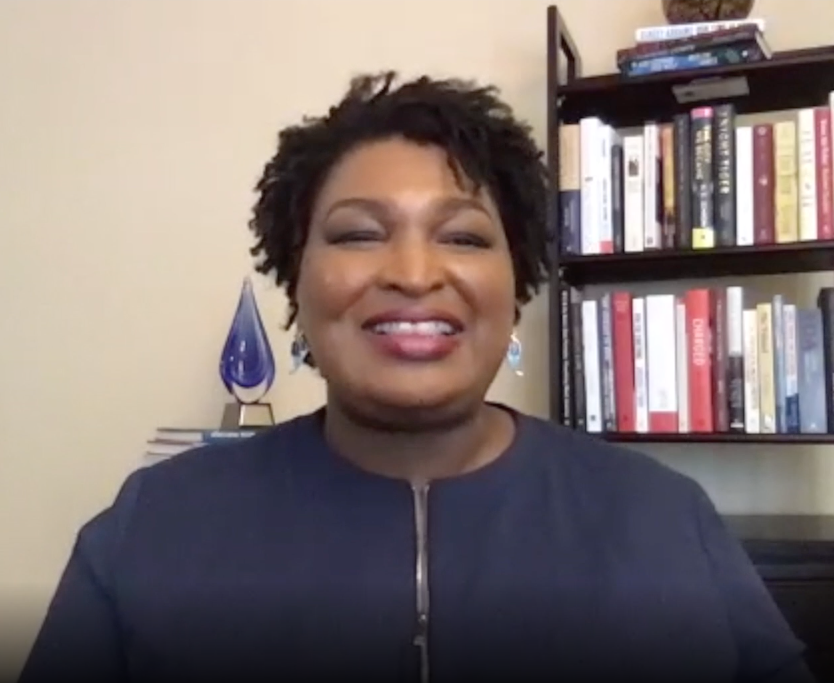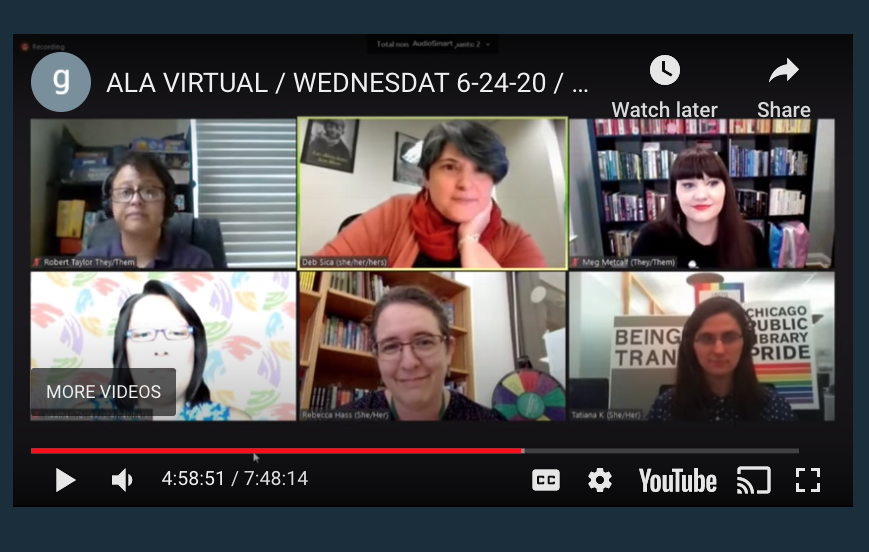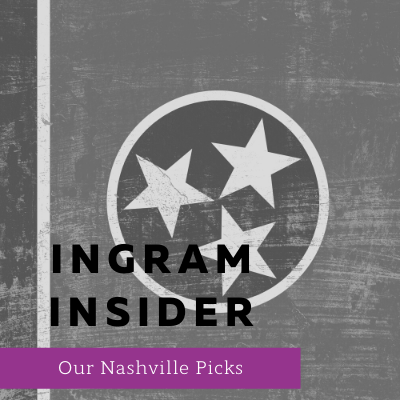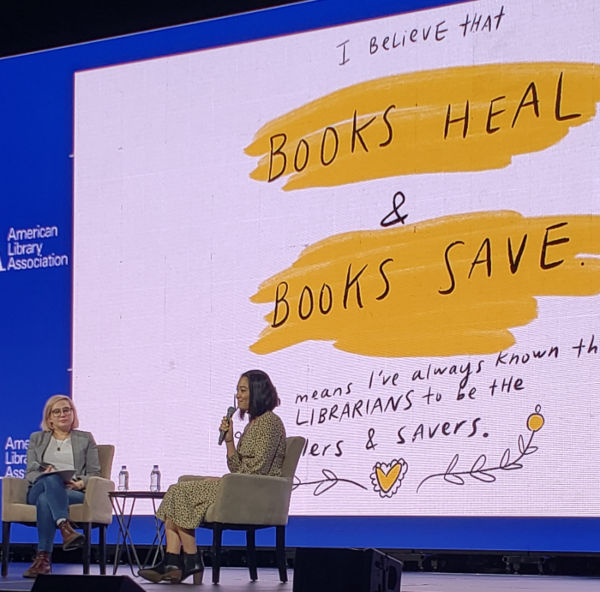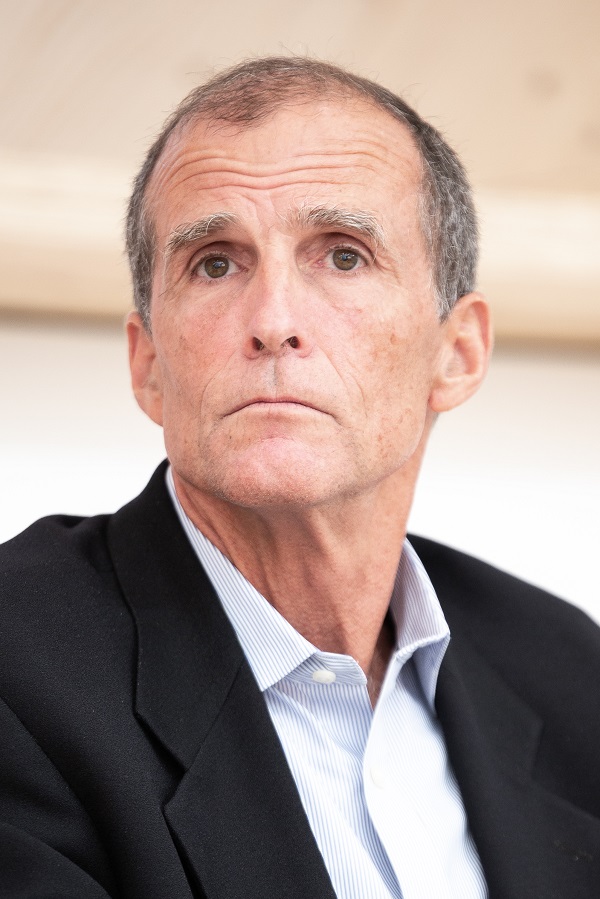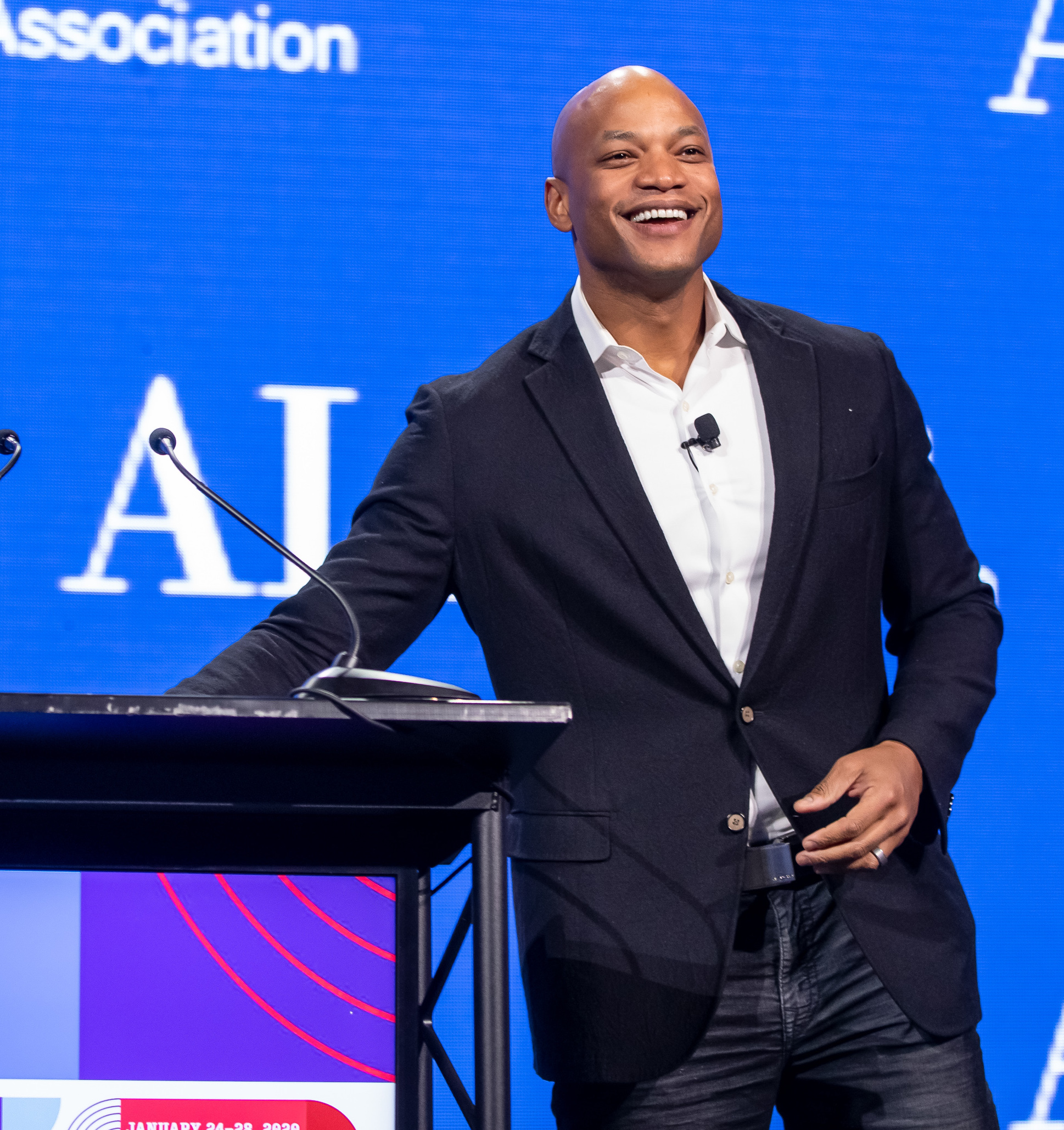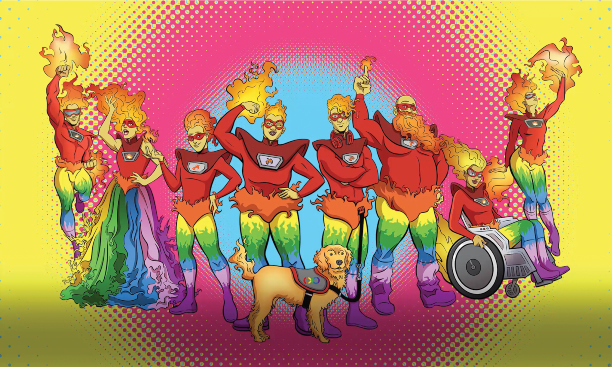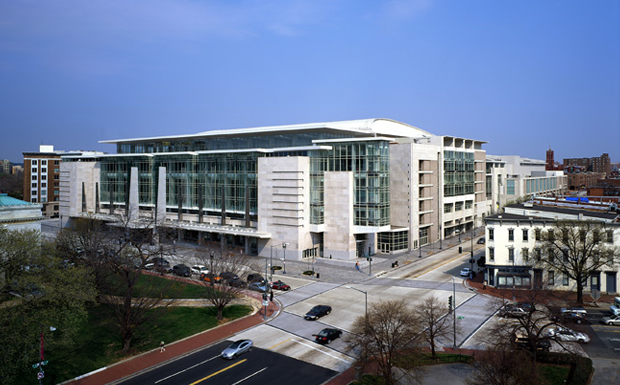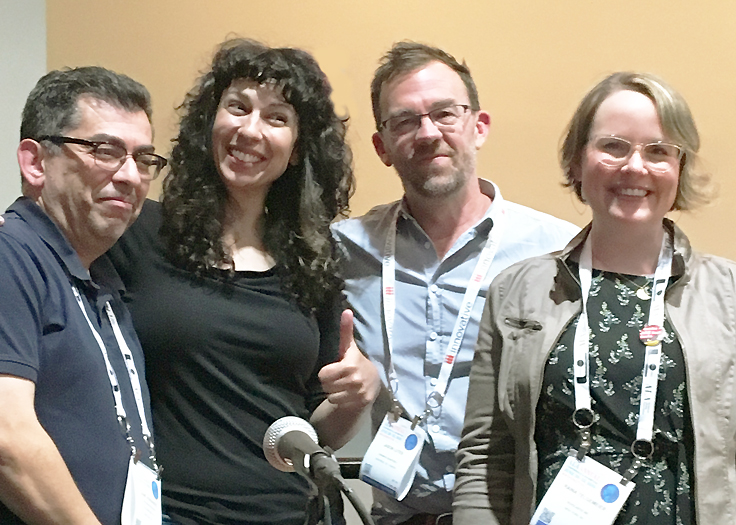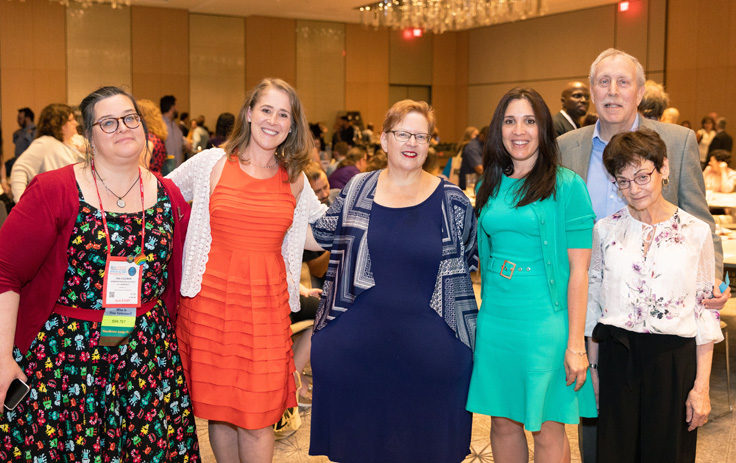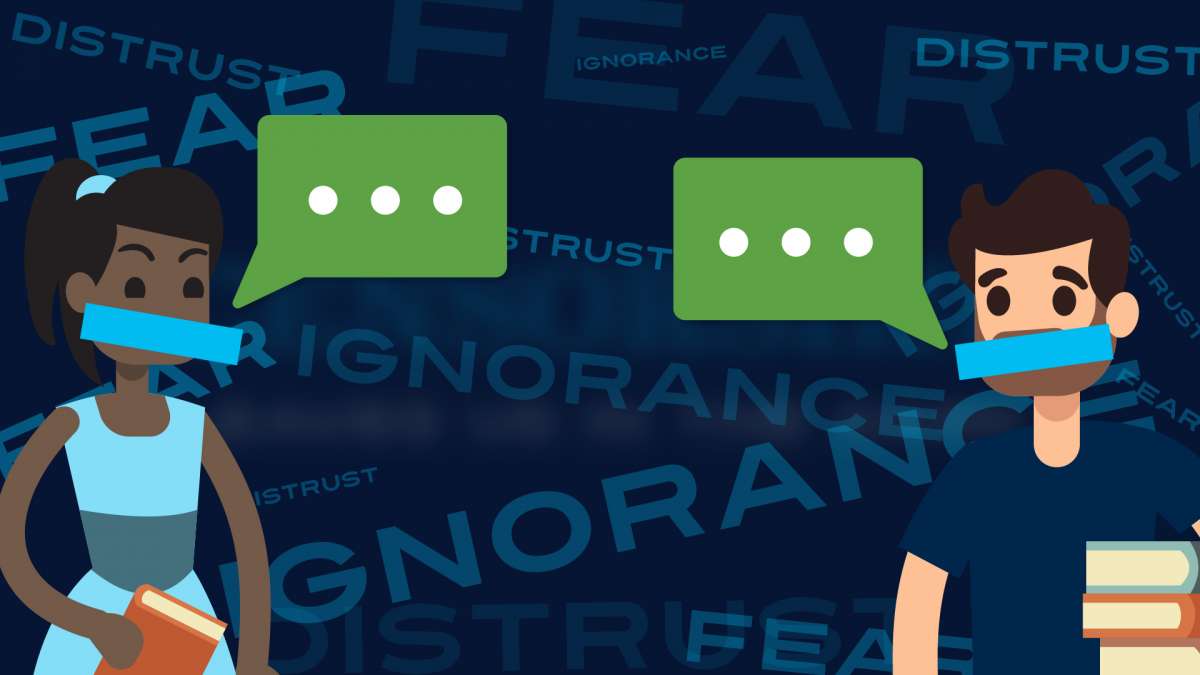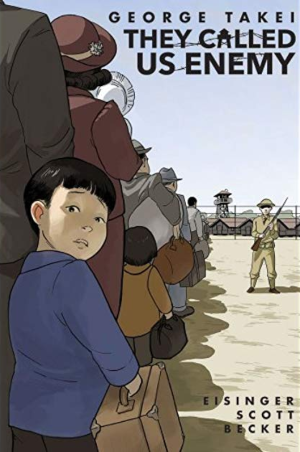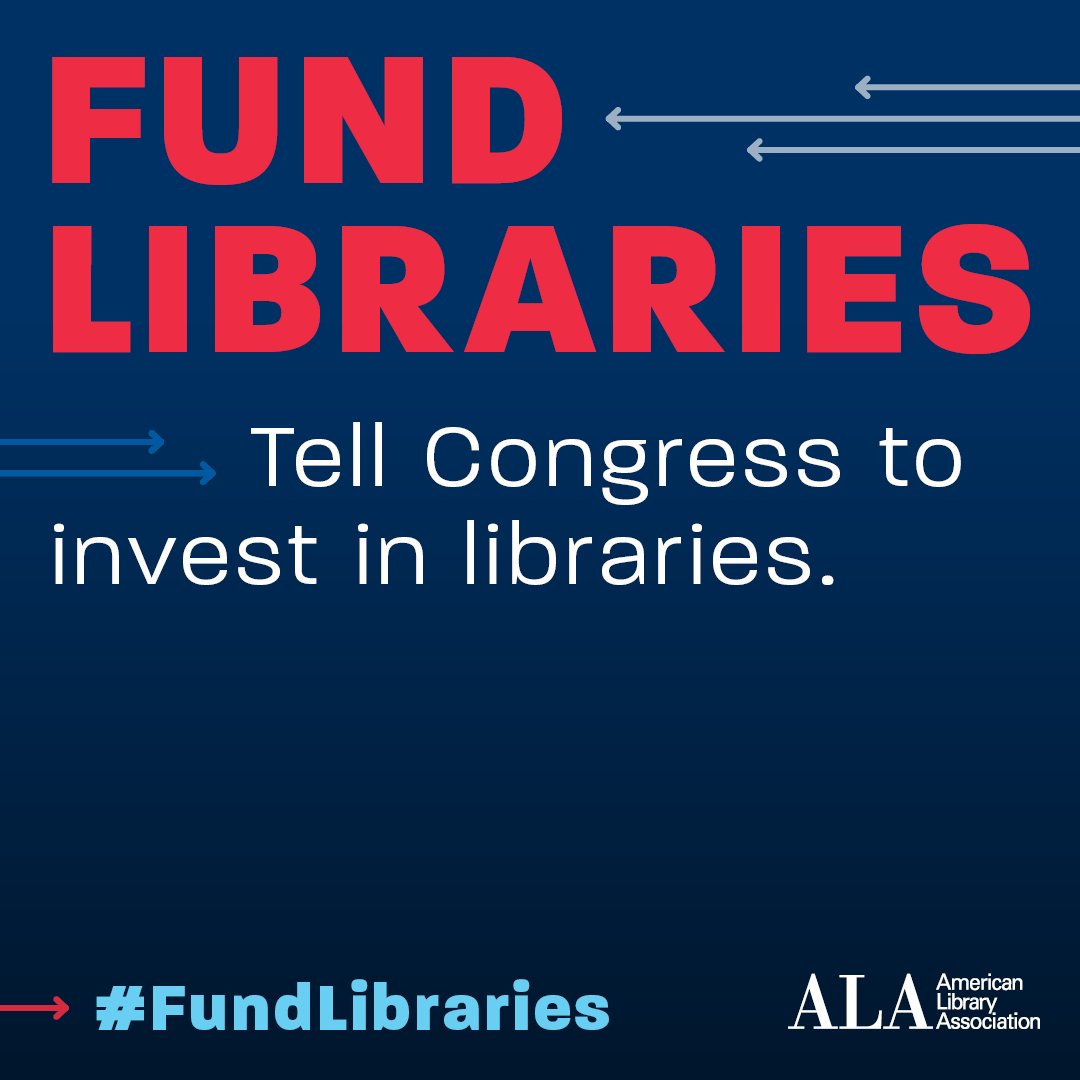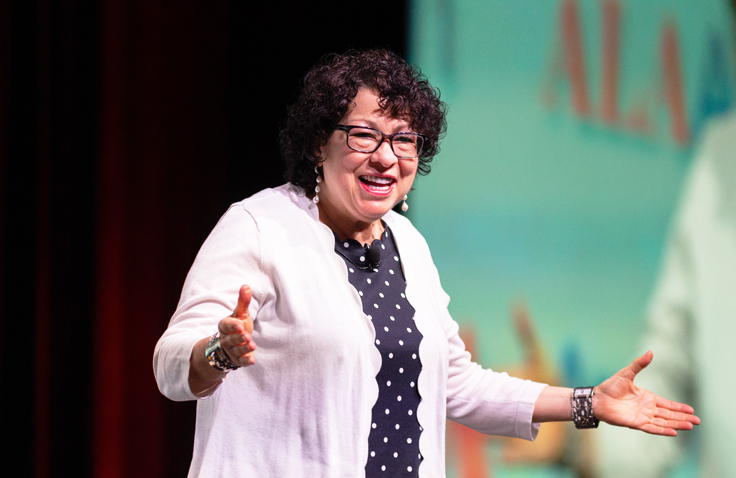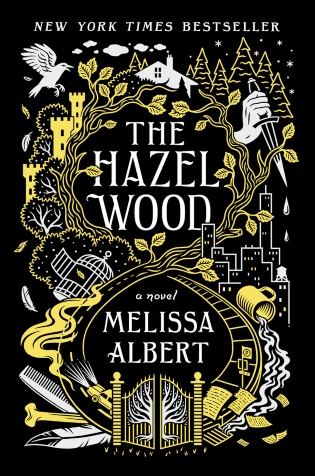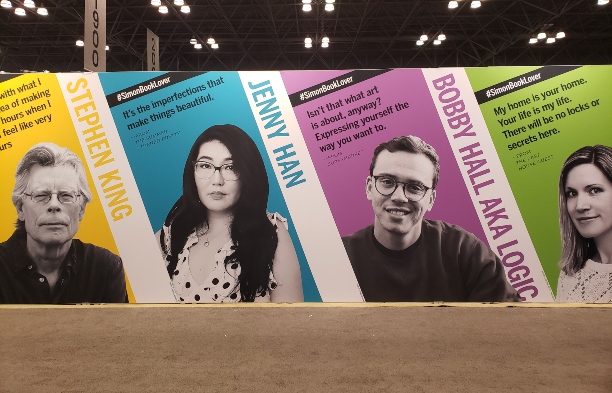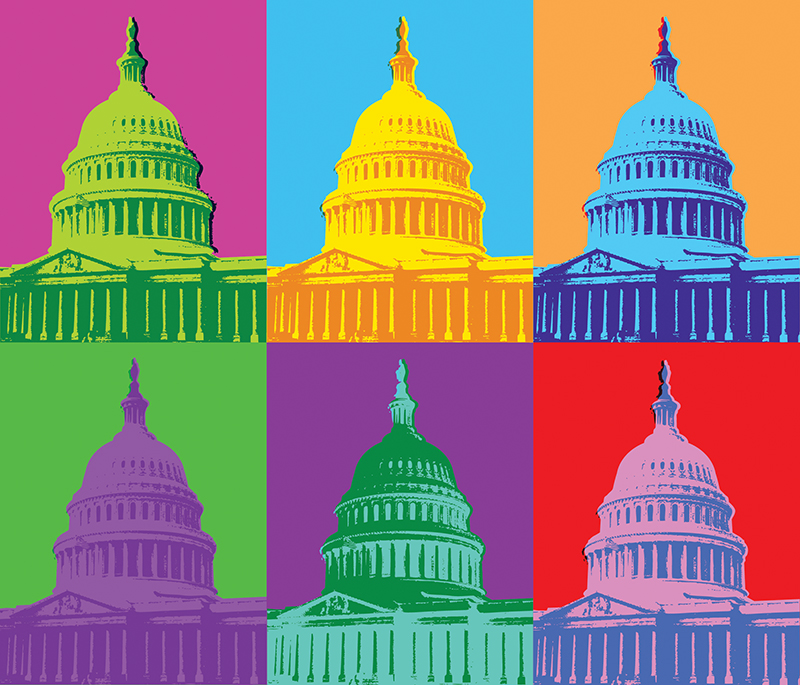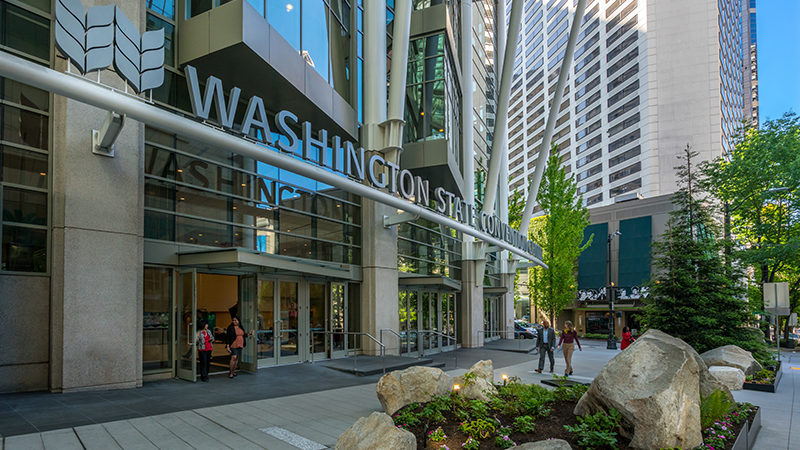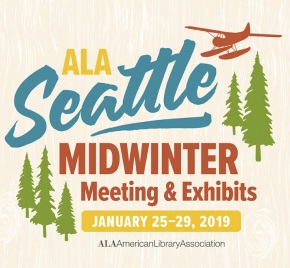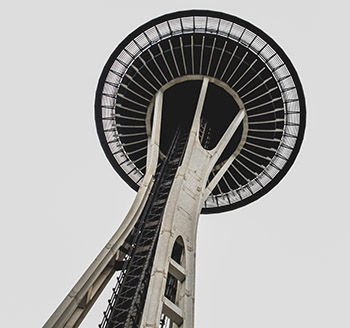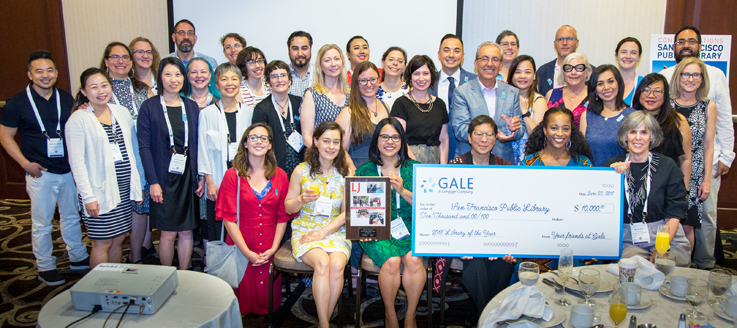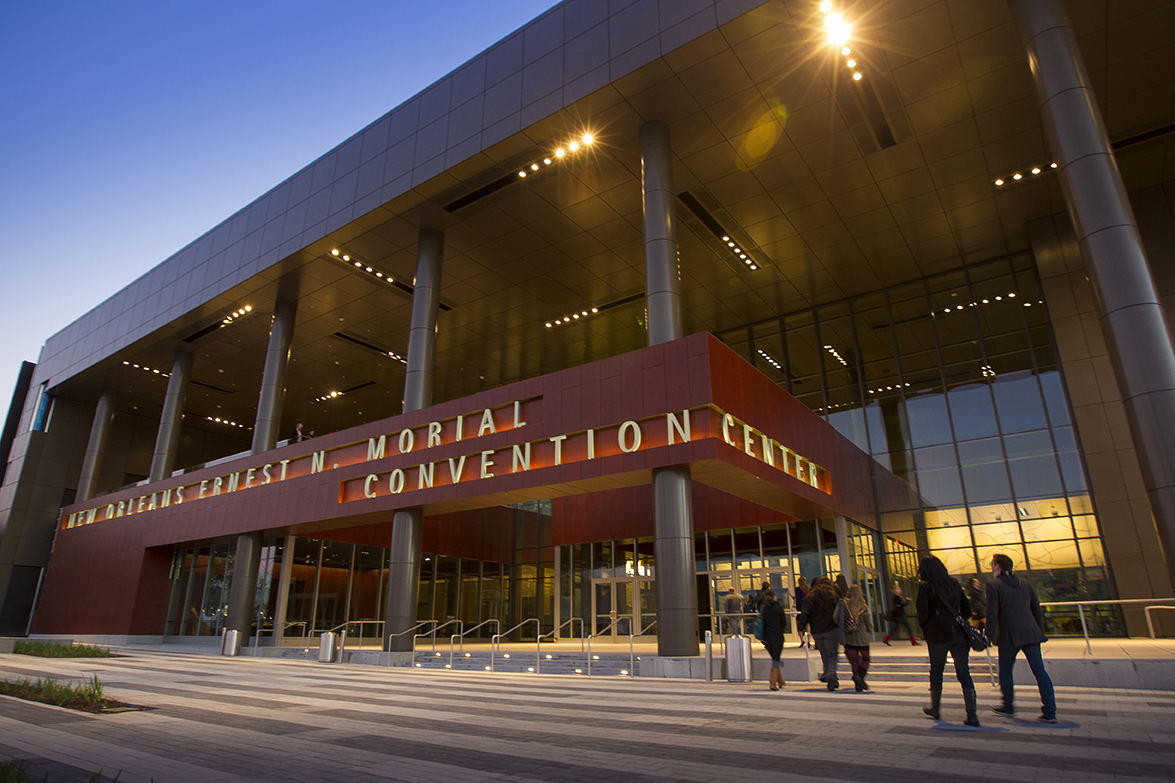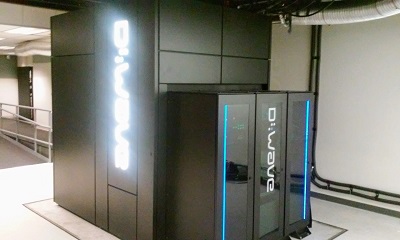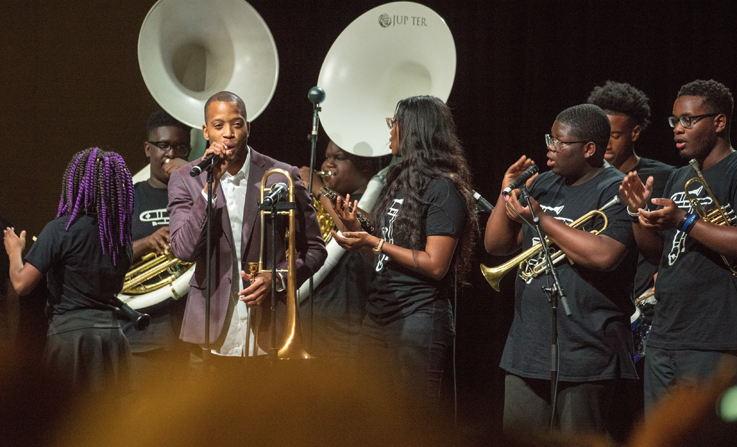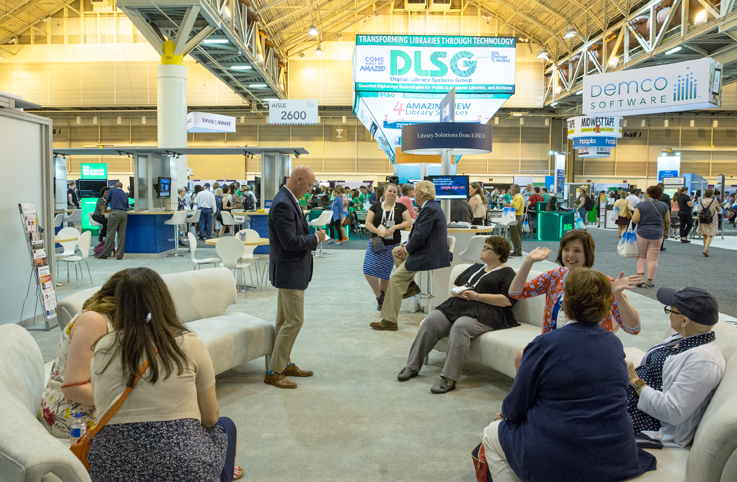Related
When thinking of how to best sum up this year’s Charleston Conference, held November 11–15 and available to view online December 9–13 (along with exclusive “online only” sessions), one word sprung to mind: collaboration. As a first-time attendee from a publishing technology background, it was wonderful to see so many professionals from the worlds of libraries and publishing come together to tackle challenges that are affecting the entire information industry.
The American Library Association (ALA) Annual Conference, held June 27–July 2 in San Diego, CA, was big and busy, with more than 8,400 attendees and 5,000 exhibitors, authors, illustrators, members of the press, and staff. And while those numbers didn’t top last year’s Annual in Chicago, which saw more than 15,000 guests, it felt busier—possibly because of the slightly smaller venue, and definitely because of the sense of engagement and enthusiasm throughout. The great weather may have kicked the mood up a few notches as well.
The American Library Association’s 2024 annual conference and exposition included many announcements from library vendors. Here’s a roundup of some of the news from this year’s show floor.
Keynoters and other speakers at American Library Association (ALA) conferences over the years have come to the conference from a wide range of disciplines, but their speeches all incorporate at least a few minutes attesting to the value of libraries in their lives—some landing more powerfully than others. At this year’s ALA Annual, held June 27–July 2 in San Diego, CA, a few speakers went beyond tales of being avid library users as children to tell stories that painted vivid pictures of what libraries, literacy, and unfettered access can mean to a kid who is looking to understand their world a little better.
This year’s American Library Association Annual Conference will be held June 27 – July 2 in San Diego, CA, where Pacific Ocean breezes and dry air will likely keep daytime temperatures in the low ’70s and nights 10 degrees cooler. Add in the San Diego Convention Center’s bayfront setting and nearby attractions that include Balboa Park, home to the San Diego Zoo and San Diego Museum of Art, and Mission Beach a 15-minute car trip away, and this year’s Annual is one to look forward to.
The U.S. Book Show, presented by Publishers Weekly—this year in collaboration with the Association of American Literary Agents—held its fourth annual event on May 22. The conference, which launched as a virtual symposium in 2021 to replace the defunct BookExpo America, offered a day of industry-centered conversation for publishing professionals, agents, editors, marketers, and authors.
By all accounts the 2024 Public Library Association (PLA) conference, held April 3–5 in Columbus, OH, was a resounding success. The 7,573 participants—including 5,702 attendees, 1,518 exhibitors, and 353 virtual registrants—packed the show floor, programs, and speaker sessions with palpable enthusiasm.
At the 2024 Public Library Association (PLA) conference, held April 3–5 in Columbus, OH, presentations were notably targeted and useful. And, as a number bore out, those concerns overlap in many areas.
Michael Reynolds, editor-in-chief of Europa Editions, saw libraries and publishers as star-crossed lovers that have been kept far apart for as long as possible, finally meeting in one room in Columbus, OH, at IndieLib, a conference hosted by the Independent Publishers Caucus and the Digital Public Library of America on April 2.
Large library gatherings usually share city space with at least one other special interest group—who could forget the young dancers shivering in their spangled leotards during January’s LibLearnX Conference in sub-zero Baltimore? This year, those attending the Public Library Association (PLA) biennial conference, held April 3–5 in Columbus, OH, will be overlapping with a crowd of umbraphiles—eclipse chasers—getting a jump on the first visible total solar eclipse in the United States since 2017, occurring April 8. Columbus lies just south of the path of totality.
Artificial intelligence (AI) was a hot topic at this year’s American Library Association LibLearnX conference in Baltimore, January 19–22, with multiple presentations, panels, and workshops covering the technology and its impact on libraries and the people they serve, touching on both AI’s potential and its current flaws.
Many of the topics that came up at the 2024 American Library Association LibLearnX conference, held in Baltimore January 19–22, were not surprising to anyone following library issues. People talked about the ongoing and increasing number of book challenges and how to handle them, the opportunities and challenges presented by artificial intelligence, and how to diversify a field whose demographics remain stubbornly flat, to name a few. One subject also on everyone’s mind, however, was the size of the show.
On June 26, the eve of Emily Drabinski’s ALA presidency, campaign workers, school librarians, activists, colleagues, friends, and family members gathered in her suite in the Chicago Hilton Hotel on Michigan Avenue. Against the backdrop of boats slowly moving across Lake Michigan, she addressed supporters. “Tonight we’re celebrating library wins,” she said. “In our communities, against censorship, and for the common good.”
OpenAI’s ChatGPT has been a hot topic ever since it debuted to the public seven months ago. So much so that the American Library Association’s (ALA) Core division decided to forgo its traditional wide-ranging approach to its Top Tech Trends panel and focus exclusively on the potential benefits and problems of generative artificial intelligence (AI) during the “Core Top Technology Trends: Libraries Take on ChatGPT” session at the ALA Annual Conference, held June 22–27 in Chicago.
On Thursday, June 22, the evening before the American Library Association (ALA) Annual Conference in Chicago officially began, Unite Against Book Bans hosted Rally for the Right to Read: Uniting for Libraries and Intellectual Freedom and an intellectual freedom award ceremony, attended by about 600 conferencegoers.
As always, authors were everywhere at the American Library Association (ALA) Annual Conference, held June 22–27 in Chicago. The conference was bookended by Opening General Session speaker Judy Blume, a perennially best-selling novelist currently experiencing a new wave of interest, and the Closing Session speakers, YA best-selling poet Amanda Gorman and Caldecott and Coretta Scott King–honored illustrator Christian Robinson.
The 2023 American Library Association (ALA) Annual Conference, held at Chicago’s McCormick Place convention center, had a distinctly pre-pandemic feel. Attendance numbers were up, reflecting a growing willingness to gather face-to-face. This year saw 15,851 in-person guests—nearly twice the 8,023 who convened at last year’s Annual, in Washington, DC, 587 of them international attendees—and 369 Digital Experience participants, down from 834 in 2022.
For the first time in over 30 years, librarians who work with incarcerated or detained individuals have a set of standards that reflect the diverse populations they serve.
The American Library Association Annual conference is back in its hometown this year, with a full lineup designed to keep everyone engaged.
Professors and librarians at academic institutions sometimes describe certain students—or groups of students—as “not ready for college,” or assume that they “don’t know how to study” or are “at risk of dropping out.” These negative labels are most often given to students who are first-generation, low-income, and/or BIPOC (Black, Indigenous, and people of color). These views are called “Deficit Thinking”—blaming students for any failure to excel in a new, unfamiliar academic environment, rather than examining how an institution may be failing those students.
While this is the second outing for the American Library Association’s Library Learning Experience (LibLearnX), it’s the first time that attendees will convene in person for the re-envisioned conference, which replaces the former Midwinter Meeting.
Rather than offering a subset of in-person programs live streamed to the at-home audience, concurrent schedules of separate virtual and in-person sessions, or both, this year's Charleston Conference is offering its in-person and virtual conferences two weeks apart.
John Bracken, Micah May, and Shaneé Yvette Willis discussed DPLA's new partnerships, recent projects, and the new Palace Project ebook platform during the “Digital Public Library of America: A Look Ahead” session at the American Library Association’s 2022 Annual Conference.
Speakers at the 2022 American Library Association (ALA) Annual conference, held June 23–28 in Washington, DC, featured an engaging lineup of leaders from within and outside the library world that included authors, actors, journalists, and creators.
At the American Library Association’s Annual conference in Washington, DC, the organization’s governing Council took the next big step in its slow progress toward transforming its own structure, in theory to something which is nimbler and more cost effective yet preserves many opportunities for participation and representation of all aspects of the field.
The 2022 American Library Association Annual Conference returned as an in-person gathering at the Walter E. Washington Convention Center in Washington, DC, June 23–28. While participants and exhibitors were largely enthusiastic about seeing each other face to face, often for the first time since the Annual conference in June 2019, COVID, the erosion of abortion rights, and a range of intellectual freedom challenges and privacy issues were front and center in many conversations—both in person and online.
Following a successful pilot test at Delaware’s Seaford, Laurel, and Milford libraries, the Delaware Division of Libraries (DDL) is preparing to roll out a new, comprehensive telehealth program to nine additional locations throughout the state by the end of 2022. The program was discussed in depth during “The First Statewide Library-Led Telehealth Initiative in the First State” presentation on June 26 at the American Library Association’s 2022 Annual Conference and Exhibition in Washington, DC.
The American Library Association’s (ALA) annual conference returns to a live event after a two year run of virtual-only conventions owing to COVID. The in-person event will be held June 23–28 at the Walter E. Washington Convention Center in Washington, DC. Here is a curated selection of sessions that appealed to the LJ editors who are attending the conference.
Publishers Weekly’s second U.S. Book Show, held virtually May 23–26, will lead off with an all-day track on May 24 specifically for librarians. The Libraries Are Essential program will include a roster of library leaders, educators, and advocates, as well as representatives from the American Library Association (ALA) and PEN America, examining issues currently at the forefront of library work.
In the last days of February 2020, the biennial Public Library Association (PLA) Conference wrapped up amid growing concerns over the outbreak of the SARS-CoV-2 virus. Two years and many virtual events later, the 2022 PLA Conference, held from March 23–25 at the Oregon Convention Center in Portland, was the first ALA-affiliated conference to reconvene in person.
E-access was a hot topic at the Public Library Association (PLA) 2022 conference, held in Portland, OR, from March 23–25. Programs examining points along the pipeline from licensing to broadband to innovative infrastructure were well attended.
UPDATE: While the state of Oregon will be dropping the mask mandate effective March 12, PLA 2022 requirements for masking and vaccination/negative test will remain in effect during the conference.
The first iteration of the American Library Association’s new LibLearnX conference more than met its attendance goals despite having to debut virtually rather than, as originally intended, in person. Just shy of 2,183 people attended, 109 percent of the goal of 2,000.
Several sessions at the American Library Association's inaugural LibLearnX conference, which ran virtually January 21–24, offered practical, actionable approaches to complex situations. Two notables tackled issues of how to improve libraries’ internal culture to benefit their staff.
The American Library Association’s new winter conference makes its virtual debut with a focus on active learning.
The 2021 Charleston Conference, held as a hybrid of in-person and virtual events, reflected many of the concerns of academic librarianship in the COVID-19 era. Sessions were lively and engaging, with a focus on practical information and an eye on ways to ensure that services and programs would remain sustainable in uncertain times.
After a year and a half of virtual networking, many public and academic library leaders and employees were looking forward to attending in-person conferences again, while many others remained apprehensive about travel and large group events. As library organizations and associations began finalizing plans for fall and winter conferences, they needed to balance people’s wishes for some semblance of normalcy—in-person sessions and networking, shared meals, hugs and handshakes, tote bags—with a range of safety and liability concerns.
From the American Library Association: The American Library Association’s Executive Board announced today that LibLearnX: The Library Learning Experience scheduled for January 21-24, 2022, in San Antonio, Texas, will take place virtually.
OverDrive is preparing to launch Readtelligence, a suite of new features for ebook selection and curation developed using artificial intelligence (AI) and deep learning tools to analyze every title in the company’s inventory.
The all-virtual format of the American Library Association (ALA) 2021 Annual conference, held June 23–29, meant new options for attendees who previously hadn’t been able to travel to the event, and also allowed ALA to put together an impressive roster of speakers.
“New digital technologies are bringing changes that are much more rapid and comprehensive than in the past to the way we live, work, and interact with one another. The idea that the recent advancement in digital technologies has reached qualitatively distinct stage of digital revolution is becoming more widely accepted,” explained Bohyun Kim, chief technology officer and professor for the University of Rhode Island Libraries, Kingston, during the "New Technologies of the Fourth Industrial Revolution: AI, IoT, Robotics, and Beyond” on demand presentation at the American Library Association's 2021 Annual Conference.
The Council of the American Library Association (ALA), meeting virtually at the Annual Conference, chose to take more time to consider several key proposals. Most notably, while the resolution to review the core values and one to require round tables to have at least 150 members both passed, the more ambitious of the Forward Together Resolutions Working Group’s outputs, which would restructure the committees and Council itself, were not voted on.
During the American Library Association (ALA) Virtual Annual Meeting, Lauren Geiger, metadata librarian, and Emily D. Harrison, digital projects specialist, both from Mississippi State University Libraries, discussed how to ensure that accessibility in digital collections is not limited to discoverability.
“The importance of providing equal access to information and learning experiences is nothing new, yet we consistently find that digital resources and technologies fall short” of accessibility for patrons and students with print and other disabilities, Trisha Prevett, eLearning librarian for Southern New Hampshire University said to open the "Born Accessible: Creating Equal Digital Learning Experiences for All" panel at the American Library Association (ALA) 2021 Annual Conference and Exhibition, held virtually from June 23–29. “We must ensure that libraries are providing resources that are truly accessible for all.”
The Asian Pacific American Librarians Association (APALA) President's Program at the 2021 American Library Association (ALA) Annual conference continued the theme of social justice prevalent in many of the conference offerings. The session’s title, Community Driven Justice in Our Work: Library and Archival Workers of Color Advocating for Self-Preservation, Solidarity, Change, and Justice in Communities, Workplace, and in the Profession at Large, proposed a wide cross-section of work; panelists kept the focus on their own advocacy efforts within their libraries.
On June 27, during the American Library Association (ALA) Virtual Annual Meeting, over 100 attendees listened as a panel of experts spoke about an update on the development of a framework of cultural proficiencies for racial equity.
Staff and a student from the University of Maine discuss the creation of the Racial Justice Challenge subject guide, designed to provide a week-long, self-paced, learning experience.
The subject of the Association of College and Research Libraries President’s Program at the 2021 American Library Association Annual conference, Making Change: Organizing for Action While Caring for Each Other, on June 24, was a timely one for library workers keeping their advocacy energy up after a challenging year and a half. Speakers discussed taking community organizing approaches to the work of dismantling institutional racism, widening the circle to care for colleagues and community in the ways they need without burning out.
During the American Library Association (ALA) Virtual Annual Meeting, attendees listened to an on-demand session featuring a panel of speakers who discussed partnering to amplify underrepresented and unheard voices using digital scholarship.
For the second year, the American Library Association (ALA) takes to the web to host its annual conference safely during the COVID-19 pandemic, taking place June 23-29 on a monitor near you. Exhibits will be open June 23–26 and, much like their analog counterparts, will feature activities to keep things fun and lively, including yoga, a magic show, and a bunny break.
The title of the inaugural U.S. Book Show’s opening track, “Libraries Are Essential,” was likely a well-worn sentiment for much of its audience. But coming at the beginning of Publishers Weekly’s (PW) virtual event , held May 25–27 to replace the retired BookExpo, the block of public and academic library–centered programming offered a pointed message to publishing capping a year marked by complicated relations between libraries and e-content publishers.
At the American Library Association virtual Midwinter Meeting, the association continued its ambitious three-pronged strategy of self-reinvention. The Forward Together plan, which for several years has pursued a streamlined and less siloed governance structure, is joined by a revision-in-progress of the Operating Agreement, which defines the relationship of the association to its divisions and roundtables, and the Pivot Strategy, which addresses how association management and staff do the work. These three parallel threads ran through the virtual membership meeting, the executive board, and of course, Council convenings.
Cindy Altick Aden, Leon A. Wilson, and Gina J. Millsap share wisdom on how librarians can become stronger advocates for their community, and better understand issues facing patrons in need.
The American Library Association (ALA) closed out its first virtual Midwinter Meeting—which was also its last Midwinter Meeting, as the 107-year-old conference format will be replaced next year by ALA’s LibLearnX event—with a highly anticipated conversation between ALA President Julius Jefferson and First Lady Dr. Jill Biden.
Natalie Baszile discusses We Are Each Other’s Harvest: Celebrating African American Farmers, Land, and Legacy.
The session “Small and Rural Libraries: A Candid Discussion,” held at the American Library Association (ALA) 2021 virtual Midwinter Meeting, began—as one might expect, during a year of pandemic, budget cuts, and major disruptions—by looking at the challenges small libraries face. But it quickly turned into a celebration of how they are meeting the needs of patrons, communities, and staff with imaginative, humane solutions.
The ALA President’s Program at the American Library Association Virtual Midwinter Meeting 2021 featured U.S. Poet Laureate Joy Harjo in conversation with fellow poet and memoirist Jill Bialosky, an executive editor at W. W. Norton.
The Association of Bookmobile and Outreach Services (ABOS) presented “Exploring Ways to ‘Jazz Up’ Your Library's Bookmobile, Outreach, or Book Bike Program during the COVID-19 Pandemic with the Association of Bookmobile and Outreach Services” during the American Library Association (ALA) Virtual Midwinter Meeting. The session was notably encouraging and upbeat, urging outreach librarians to reframe their services during the pandemic.
Historians Ibram X. Kendi and Keisha N. Blain discuss their latest work, Four Hundred Souls, and how they sought to bring together a community to reflect on, and make, history.
As announced in August 2020, the final incarnation of the American Library Association (ALA) Midwinter Meeting and Exhibits, originally scheduled to be held in Indianapolis, IN, will instead take place virtually January 22–26. Registration will be open until January 15. Here are LJ’s editors’ picks from the program.
The Charleston Conference, taking place virtually November 2–6, responsibly balances up-to-the-minute issues with the evergreen matter of scholarly library work. Below are a smattering of sessions selected by LJ editors.
Held online from June 24–26, ALA Virtual—Community Through Connection saw 7,349 attendees and 651 exhibitors and featured more than 50 sessions, live chats with authors and speakers, more than 75 publisher and exhibitor sessions on new titles, a virtual exhibit floor with more than 600 participating exhibitors, 11 featured speakers, and a Swag-a-Palooza with hundreds of free items.
Seven experts discussed long-term trends that are becoming even more significant in the wake of the COVID-19 pandemic.
The urgent need for antiracism work, and fighting anti-Blackness in particular, inside the culture of librarianship as well as in our communities, was an important strand of content throughout the American Library Association (ALA) Virtual Conference last week. It echoed through new Executive Director Tracie Hall’s message to Monday’s Membership Meeting and to Council, ALA president Wanda Brown’s message, and the keynote presented by Fair Fight founder Stacey Abrams, as well as granular programming on how to operationalize antiracism work in libraries.
This year marks the 100th anniversary of [white] women’s suffrage and the 50th anniversary of the American Library Association’s (ALA) Social Responsibilities Round Table Feminist Task Force (FTF). In honor of both milestones, the ALA Virtual Conference panel “Herstory Through Activism: Women, Libraries, and Activism” offered a compelling look at the intersections of feminist activism in libraries, and how the current era of COVID-19 has changed the panelists’ priorities for urgent change.
At the American Library Association's (ALA) virtual conference held this week, replacing the annual in-person conference which was canceled because of the pandemic, ALA President Wanda Brown invited as her President’s Program speaker Stacey Abrams—author, Georgia gubernatorial candidate, and founder of the organizations Fair Fight (for voting rights) and Fair Count (for census participation).
A live panel of transgender and nonbinary librarians and allies, held on June 24 at the American Library Association’s (ALA) virtual conference, offered an abundance of useful information and resources for libraries to better serve their transgender communities and ensure that transgender staff are comfortable in the workplace.
Corporations, technology companies, and government entities are gathering more data than ever about people, and libraries have an important role to play in educating the public about surveillance, personal information, and online privacy, according to panelists at the Library Information Technology Association’s (LITA) Top Tech Trends panel.
Are you headed to Nashville for PLA 2020? Do you want to dive in beyond the books to have an experience you won't forget? Our Ingram Library Services team has compiled a list of their "Nashville Picks" for you to explore while in the Music City.
The 2020 American Library Association Midwinter conference, held January 24–28 in Philadelphia, closed with featured speaker Chanel Miller on Monday afternoon. Miller, an author and unintentional activist, considers libraries to be her home away from home.
At a Saturday afternoon session at the American Library Association (ALA) 2020 Midwinter meeting, a panel of librarians and community partners offered strategies on voter engagement to a well-attended audience of public, school, academic, and state librarians
In a candid and occasionally contentious “Ask Me Anything” session on Saturday, January 25 at the 2020 American Library Association (ALA) Midwinter Meeting in Philadelphia, Macmillan CEO John Sargent discussed the publisher’s two-month embargo period for library ebooks, which went into effect on November 1.
OIF Examines Legal Issues for Library Social Media and First Amendment “Audits” | ALA Midwinter 2020
At an early Saturday session at the American Library Association (ALA) 2020 Midwinter meeting, ALA’s Office for Intellectual Freedom (OIF) weighed in on several areas where libraries and their leaders and staff may have questions regarding their rights, offering resources for both public and academic libraries.
The 2020 American Library Association Midwinter conference, held January 24–28 in Philadelphia, officially kicked off with featured speaker Wes Moore’s opening session on Friday afternoon. Moore—an author, social entrepreneur, television producer, and decorated U.S. Army combat veteran—linked his journey as a reader to pressing issues of social justice and the role libraries can, and should, play.
Library Journal asked academic faculty how they viewed their roles in addressing textbook affordability in a recent survey sponsored by Taylor & Francis.
Since its launch in 2015, Flame Con, the LGBTQ-themed comic convention created by nonprofit Geeks OUT, has had increasingly more to offer: a multitude of panels, several workshops, and an increasing number of vendors. Eager crowds from a variety of fandoms gathered on Saturday, August 17 and Sunday, August 18 for this year's event.
Vendors at this year’s American Library Association annual conference in Washington, DC launched new products, debuted significant updates, and announced winners of grants and awards. Here are a few items that LJ had an opportunity to learn about in person.
Comics have long been a part of the fabric of the library, but it wasn’t until the early 2000s that they really started booming, said Robin Brenner, teen librarian, Brookline, P.L., MA, addressing a rapt audience at the very first “Graphic Novels & Comics Round Table (GNCRT) President’s Program—State of the Comics Union: Past, Present, Future,” held June 23 at the ALA Annual conference in Washington, DC.
In the 1970s, the celebrated cartoonist and tireless comics advocate Will Eisner (1917–2005) stood before the Library of Congress and asked that comics be shelved in the library, believing its acceptance of the medium would lead libraries across America to follow suit. Some 20 years later, in 1997, DC Comics became the first comics publisher to exhibit at the American Library Association (ALA) Annual conference.
At the American Library Association (ALA) Annual Conference in Washington, DC, sessions relating to censorship and the First Amendment, hosted by ALA’s Office for Intellectual Freedom, drew librarians seeking advice on challenges to books, programs, and more.
Author, actor, and activist George Takei continued the American Library Association (ALA) Annual Conference’s speaker series on Monday, June 24, in Washington, DC. Takei recalled the internment of Japanese Americans during World War II, which is also the focus of his upcoming graphic memoir, They Called Us Enemy.
Library legislation news has been tentatively positive, according to the panel discussion “173 Days of Congress: An Examination” at the 2019 American Library Association (ALA) Annual Congress in Washington, DC. Representatives from ALA’s Washington Office and the U.S. Copyright Office looked at the successes and challenges libraries have confronted during the first six months of the 116th Congress, and identified a number of upcoming issues that advocates will want to keep an eye on.
Sonia Sotomayor, associate justice of the United States Supreme Court, opened the American Library Association (ALA) Annual Conference’s auditorium speaker series on Saturday, June 22, in Washington, DC. Sotomayor, who grew up in the Bronx, NY, credited her local branch—the tiny Parkchester Library—as a refuge from the sadness of her household after her father died when she was nine.
Members of the Library Freedom Project and others protested the presence of the Central Intelligence Agency (CIA), who have a recruitment booth at the American Library Association's Annual Conference happening this week in Washington, D.C.
Making the Make Book has become a fixture of BookExpo in recent years. The (almost) annual panel, which details how publishers have led a debut or midlist book to success, often draws crowds of publishing executives, booksellers, and librarians.
The sixth annual BookCon, held on Saturday, June 1 and Sunday, June 2, drew crowds eager to celebrate books, fandom, and more. The show grew in both panels and exhibitors, with a varied lineup of pop culture-related sessions as well as lengthy autographing lines on both days.
Libraries are the heart of their communities, and this year’s American Library Association (ALA) annual conference will take place in the heart of national policymaking: Washington, DC. The conference, running June 20–25 at the Walter E. Washington Convention Center and surrounding venues, will take ample advantage of its setting: highlights include a tour of DC area library branches (alas, already sold out) and hosting not only Librarian of Congress Carla Hayden (in conversation with Palaces of the People author Eric Klinenberg) as an auditorium speaker, but also Supreme Court Justice Sonia Sotomayor.
The Washington State Convention Center exhibit hall was a hive of activity during the American Library Association’s Midwinter conference in Seattle last month. Here are a few of the vendor announcements LJ had the opportunity to hear about in person.
The American Library Association (ALA) 2019 Midwinter Meeting in Seattle, January 25–29, saw uncharacteristically sunny skies, a busy exhibit floor at the Washington State Conference Center, and a host of well-attended offerings that addressed civic and social innovation, human-centered design, and support for future leadership.
Librarians discussed a wide range of emerging opportunities and challenges during the Library Information Technology Association’s Top Tech Trends panel at the American Library Association’s Midwinter conference.
As always, library vendors had a number of announcements to share at the American Library Association’s 2018 annual conference in New Orleans. Here are a few that LJ had an opportunity to learn about in person.
A group of experts discussed emerging, library-relevant technology trends ranging from Quantum Computers to the deployment of digital libraries in public housing developments during the Library and Information Technology Association’s Top Tech Trends panel at ALA Annual 2018
ALA's 2018 Annual conference opened with a bang, with guests ranging from Trombone Shorty to Michelle Obama
ALREADY A SUBSCRIBER? LOG IN
We are currently offering this content for free. Sign up now to activate your personal profile, where you can save articles for future viewing

